
Página 1 de 53
This is an unofficial English translation of the Royal Decree 1090/2015, revised by the
Spanish Agency of Medicines and Medical Devices
Royal Decree 1090/2015, of 4 December, regulating clinical trials
with medicinal products, Ethics Committees for Investigation with
medicinal products and the Spanish Clinical Studies Registry
Clinical research with medicinal products is the basic element that allows medicinal products to
be authorised by medicinal product agencies, to be marketed by their marketing authorisation
holders with the guarantees required by law, and finally to be used in clinical practice for the benefit
of patients. It also allows new or more efficient forms of use to be investigated once the medicinal
products have been marketed. In summary, clinical research enables high-quality knowledge to be
generated and therapeutic tools to be developed that improve those already available and
contributes to prevention, alleviation and cure of diseases and improvement of quality of life of the
population.
Clinical research must therefore be conducted in an environment that guarantees the protection
of individuals who participate in it in accordance with elements such as the Declaration of Helsinki,
approved by the World Medical Association, and the Council of Europe Convention for the protection
of human rights and human dignity with regard to the application of biology and medicine, signed in
Oviedo. Likewise, it must guarantee the basic principles set out in Act 41/2002, of 14 November,
regulating patient autonomy and rights and obligations in terms of clinical documentation and
information, and Act 26/2011, of 1 August, on the adaptation to the International Convention on the
Rights of People with Disabilities. Finally, it must also guarantee that the results derived from it are of
quality and useful for the purposes previously expressed and should therefore be conducted in a
context of maximum transparency.
At the same time, it is necessary to promote clinical research of orphan medicinal products and
medicinal products aimed at the treatment of population groups such as children, women, and
elderly people who traditionally have been poorly represented in clinical research.
The European Harmonisation regarding clinical trials takes due account of both the general
regulations on medicinal products and, specifically, Directive 2001/20/EC of the European
Parliament and of the Council, of 4 April 2001, on the approximation of the laws, regulations and
administrative provisions of the Member States as regards the implementation of good clinical
practice in the conduct of clinical trials on medicinal products for human use. In Spain, Royal Decree
223/2004, of 6 February, regulating clinical trials with medicinal products incorporated this directive
into the Spanish legal system in its entirety, establishing the principles and basic requirements that
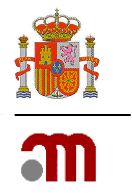
Página 2 de 53
have regulated until the present time the conduct of clinical trials with medicinal products and Ethics
Committees as guarantors of their ethical and scientific quality. Subsequently, Act 29/2006, of 26
July, on guarantees and the rational use of medicinal products and medical devices, as well as
currently the consolidated text approved by Royal Legislative Decree 1/2015, of 24 July, covering
clinical trials with medicinal products in its Title III under the heading "On the guarantees of research
in medicinal products for human use" and, additionally, Order SCO/256/2007, of 5 February,
establishing detailed principles and guidelines of good clinical practice and the requirements for
authorisation of the manufacture or importation of investigational medicinal products for human use
incorporated in its entirety into national law Commission Directive 2005/28/EC, of 8 April, laying
down the principles and guidelines of good clinical practice as regards investigational medicinal
products for human use, as well as the requirements for authorisation of the manufacture or
importation of said products.
However, the regulation of clinical trials with medicinal products has been the object of some
criticism in recent years and public analyses that have focused on the complexity of the procedure of
trial authorisation, which imposed a disproportionate bureaucratic burden on authorisation that has
hindered clinical research in the European Union. Although the European Commission published
various documents to further improve and harmonise the application of legislation, Regulation (EU)
No 536/2014 of the European Parliament and of the Council, of 16 April 2014, on clinical trials on
medicinal products for human use, and repealing Directive 2001/20/EC, has finally been published,
in which profound changes are proposed seeking to simplify procedures without compromising
guarantees for participants in clinical trials.
The new Regulation sets out, on the one hand, common procedures for clinical trial
authorisation throughout Europe, urging Member States to cooperate in assessment by means of a
single common position, but on the other hand, leaves outside of this cooperation those aspects of
an intrinsically national nature requiring assessment by each Member State. Moreover, to promote
clinical research in the European Union, it sets very tight periods for assessing an application
dossier, maintains the concept of tacit authorisation and sets no minimum timelines for authorisation.
The new European Regulation also introduces some changes in definitions that are of great
relevance, particularly but not only, for research sponsored by academic investigators. Thus, it
introduces the concept of "low-intervention clinical trial", in which it calls for less rigorous rules in
aspects such as monitoring, the content of the master file, or traceability, without prejudice to the
safety of the individuals participating in these trials.
In summary, and given that the European Commission has opted for the legal form of a
Regulation, the aspects regulated in this are directly applicable for Member States and shall result in
a lower variability in the application of the rules. However, the same regulation leaves to national
development basic aspects such as the system by which each State reaches a single position in
assessment, assessment of ethical issues and informed consent, or mechanisms of compensation,
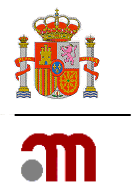
Página 3 de 53
among others. On the other hand, given that the date of application of the Regulation has been
delayed to not before May 2016, maintaining the possibility that the Sponsor requests the
authorisation of a clinical trial under Directive 2001/20/EC of the European Parliament and of the
Council, of 4 April 2001, for at least three years after the date of publication of the Regulation, some
aspects of the transposition of said Directive should be maintained on a temporary basis.
The changes made in Regulation (EU) No 536/2014 of the European Parliament and of the
Council, of 16 April 2014, therefore require the introduction of significant amendments to national
legislation to allow for compliance when the Regulation is applicable. However, after 10 years of
implementation of Royal Decree 223/2004, of 6 February, some potential improvements had also
been identified as needing to be made in the procedure for authorisation of clinical trials in Spain. In
line with those included in the new Regulation, these cover aspects such as increased efficiency in
processes of communication and assessment or identification of the responsibilities of all agents
involved. This has made it advisable not to wait to the date of application of the Regulation to adopt
those necessary amendments to national legislation so as to adapt rapidly to the new Regulation and
maintain a competitive position of Spain in the European and international context of clinical
research.
In this regard, there are two aspects of national development of legislation that deserve
separate comment. On the one hand, it is necessary to include the Ethics Committees for Clinical
Investigation in the development of Act 14/2007, of 3 July, on biomedical research. This Act
determines in its third transitory provision that Ethics Committees for Clinical Investigation shall
cease to exist when Ethics Committees for Investigation are constituted. In the development of Act
14/2007, of 3 July, it was also planned to create a National Authority for Ethics Committees for
Investigation to be in charge of the general aspects of coordination and the registration of these
Committees. However, given the specific characteristics of clinical research with medicinal products
and the requirements imposed in the new Regulation, coordination of the single decision for clinical
trials with medicinal products, as well as other aspects of supervision concerning those Ethics
Committees for Investigation accredited for assessment of studies with medicinal products, shall
correspond, according to this Royal Decree, to the Spanish Agency of Medicines and Medical
Devices. Furthermore, the additional requirements to be met by the Ethics Committees for
Investigation in order to be accredited as Ethics Committees for Investigation with medicinal products
are established, taking into account the specificities applicable to clinical investigation with medicinal
products and medical devices, and taking as a reference the accreditation criteria that are
determined in the development of this Act.
Finally, this Royal Decree develops an aspect of the consolidated text of the Act on guarantees
and rational use of medicines and medical devices approved by Royal Legislative Decree 1/2015, of
24 July which, in its article 62, lays the foundation for the publicly accessible and free of charge
national registry of clinical trials with medicinal products for human use as a necessary measure for
transparency. For this, the Royal Decree establishes that the Spanish Agency of Medicines and
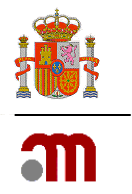
Página 4 de 53
Medical Devices must provide the general public with certain information about authorised clinical
trials on its website. In this Royal Decree, the Spanish Clinical Studies Registry is developed from a
broader perspective to also permit registration of non-interventional studies with medicinal products
that are classified by the Spanish Agency of Medicines and Medical Devices. In addition, the creation
of this registry takes into consideration the public utility proposed in the consolidated text of the Act
on guarantees and rational use of medicinal products and medical devices, for clinical trials with
medicinal products, extending it, on a voluntary basis, to all prospective clinical studies outside the
scope of medicinal products. Thus, the registry shall be mandatory and complete with regard to
clinical trials with medicinal products, but is open to use as a voluntary registry for any other clinical
study when its sponsors wish to use it for the purposes set forth in the World Health Organization
International Clinical Trials Registry Platform.
For the World Health Organization, the registration, publication, and public access to the
relevant contents of clinical trials is a scientific, ethical, and moral responsibility. The World Health
Organization itself has established the minimal data set of a clinical trial that should be made public.
This standard is the same as that adopted by the European Parliament and the Council to make
publicly accessible the data contained in the EudraCT database which contains information on the
clinical trials with medicinal products in which any site located in the European Economic Area and
that has been authorised by the competent national authority participates. The content of the
Spanish Clinical Studies Registry meets the standards set in the WHO International Clinical Trials
Registry Platform. It has also been taken into account that the applicant for authorisation of a clinical
trial with medicinal products or for classification of non-interventional studies already provides
information on the clinical trial with medicinal products to the Spanish Agency of Medicines and
Medical Devices in accordance with the Spanish and European regulation on this matter. Thus,
information and communication technologies shall be used to streamline processing.
This Royal Decree aims, therefore, to adapt Spanish legislation so as to make feasible the
current and future application of Regulation (EU) No 536/2014 of the European Parliament and of the
Council, of 16 April 2014, and to develop those aspects that the Regulation leaves to national
legislation. This is intended to promote and facilitate clinical research with medicinal products in
Spain, the generation of knowledge, transparency, the safety of participants and the usefulness of
the results or, in summary, to consolidate the confidence of society in research and to foster its
progress.
Pursuant to article 149.1.16 of the Constitution, this Royal Decree is enacted according to the
sole authority held by the State regarding legislation on pharmaceutical products, while guaranteeing
with regard to the processing of personal data, respect for Organic Act 15/1999, of 13 December, on
Personal Data Protection, and its development regulations.
In accordance with Act 16/2003, of 28 May, on cohesion and quality of the National Health
System, this Royal Decree has been subject to prior opinion by the Advisory Committee and the
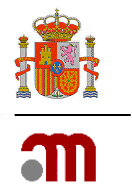
Página 5 de 53
Plenary Session of the Inter-Territorial Board of the National Health System. Furthermore, the
Spanish Data Protection Agency has issued its mandatory opinion, pursuant to the provisions in
Organic Act 15/1999, of 13 December, and the Statute of this Agency, enacted by Royal Decree
428/1993, of 26 March.
In the preparation process of this Royal Decree, the Autonomous Communities, the cities of
Ceuta and Melilla, and the interested stakeholders have been consulted.
By virtue of the above, at the proposal of the Ministry of Health, Social Services and Equality,
with prior approval of the Ministry of Finance and Public Administration, in accordance with the State
Council and after deliberation by the Council of Ministers at its meeting of 4 December 2015,
I HEREBY DECREE:
CHAPTER I
General provisions
Article 1. Purpose.
1. This Royal Decree shall apply to clinical trials with medicinal products for human use
conducted in Spain and has as its purpose:
a) To develop specific regulations for application in Spain of Regulation (EU) No 536/2014 of
the European Parliament and of the Council, of 16 April 2014, on clinical trials on medicinal products
for human use, and by which Directive 2001/20/EC, regarding clinical trials with medicinal products
for human use conducted in Spain is repealed.
b) To regulate Ethics Committees for Research with medicinal products, as well as the Spanish
Clinical Studies Registry, formed by both clinical trials and non-interventional post-authorisation
studies conducted with medicinal products for human use.
To this end, the administration of an investigational medicinal product to individual patients
within the scope of standard medical practice and with the sole fundamental aim of achieving a
therapeutic benefit for those patients shall not be considered a clinical trial with medicinal products.
In this case, use of unauthorised medicinal products or under conditions of use different from those
authorised shall be governed by the provisions laid down in Royal Decree 1015/2009, of 19 June,
regulating the availability of medicinal products in special situations.
2. Clinical practice and the freedom of prescription of the physician or other healthcare
professionals shall under no circumstances protect the conduct of unauthorised clinical trials or the
use of secret remedies or others which have not been declared to the health authorities.
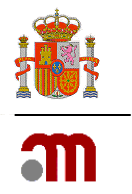
Página 6 de 53
Article 2. Definitions:
1. For the purposes of this Royal Decree, the following definitions shall apply:
a) "Medicinal product for human use": Any substance or combination of substances presented
as having properties for treating or preventing disease in human beings or which may be used in or
administered to human beings either with a view to restoring, correcting or modifying physiological
functions by exerting a pharmacological, immunological or metabolic action, or to making a medical
diagnosis.
b) "Radiopharmaceutical": Any medicinal product which, when ready for use for therapeutic or
diagnostic purposes, contains one or more radionuclides (radioactive isotopes).
c) "Adverse reaction": Any noxious and unexpected response to a medicinal product.
d) "Serious adverse reaction": Any adverse reaction which results in death, is life-threatening,
requires inpatient hospitalisation or prolongation of existing hospitalisation, results in persistent or
significant disability or incapacity, or is a congenital anomaly or birth defect. For reporting purposes,
suspected adverse reactions that are judged to be medically important shall also be considered
serious, even if they do not meet the preceding criteria, such as those that endanger the patient or
require an intervention to prevent any of the aforementioned outcomes and all suspected
transmissions of an infectious agent via a medicinal product.
e) "Immediate packaging": The container or any other form of packaging immediately in contact
with the medicinal product.
f) "Outer packaging": The packaging into which the immediate packaging is placed.
g) "Medical device": Any instrument, apparatus, appliance, software, material or other article,
whether used alone or in combination, including the software intended by their manufacturer to be
used specifically for diagnostic and/or therapeutic purposes and and necessary for its proper
application,, intended by the manufacturer to be used for human beings for the purpose of:
1. Diagnosis, prevention, monitoring, treatment or alleviation of a disease.
2. Diagnosis, monitoring, treatment, alleviation of or compensation for an injury or handicap.
3. Investigation, replacement or modification of the anatomy or of a physiological process.
4. Control of conception, and which does not achieve its principal intended action in or on the
human body by pharmacological, immunological or metabolic means, but which may be assisted in
its function by such means.
h) "Clinical study": Any research in relation to humans intended:
1. To discover or verify the clinical, pharmacological or other pharmacodynamic effects of one or
more medicinal products.
2. To identify any adverse reaction to one or more medicinal products.
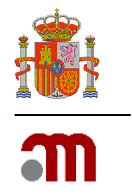
Página 7 de 53
3. To study the absorption, distribution, metabolism and excretion of one or more medicinal
products, with the objective of ascertaining the safety and/or efficacy of said medicinal products.
i) "Clinical trial": A clinical study which fulfils any of the following conditions:
1. The assignment of the subject to a particular therapeutic strategy is decided in advance and
does not fall within normal clinical practice of the Member State concerned.
2. The decision to prescribe the investigational medicinal products is taken together with the
decision to include the subject in the clinical study.
3. Diagnostic or monitoring procedures in addition to normal clinical practice are applied to the
subjects.
j) "Low-intervention clinical trial": A clinical trial which fulfils all of the following conditions:
1. The investigational medicinal products, excluding placebos, are authorised.
2. According to the protocol of the clinical trial:
1. The investigational medicinal products are used in accordance with the terms of the
marketing authorisation; or
2. The use of the investigational medicinal products is evidence-based and supported by
published scientific evidence on the safety and efficacy of those investigational medicinal products in
any of the Member States concerned.
3. The additional diagnostic or monitoring procedures do not pose more than minimal additional
risk or burden to the safety of the subjects compared to normal clinical practice in any Member State
concerned.
k) "Non-interventional study": A clinical study other than a clinical trial.
l) "Investigational medicinal product": A medicinal product which is being tested or used as a
reference, including as a placebo, in a clinical trial.
m) "Normal clinical practice": The treatment regime typically followed to treat, prevent, or
diagnose a disease or a disorder.
n) "Advanced therapy investigational medicinal product": An investigational medicinal product
which is an advanced therapy medicinal product as defined in point (a) of article 2(1) of Regulation
(EC) No 1394/2007 of the European Parliament and of the Council, of 13 November 2007, on
advanced therapy medicinal products and amending Directive 2001/83/EC and Regulation (EC) No
726/2004.
ñ) "Auxiliary medicinal product": A medicinal product used for the needs of a clinical trial as
described in the protocol, but not as an investigational medicinal product.
o) "Authorised investigational medicinal product": A medicinal product authorised in accordance
with Regulation (EC) No 726/2004 or in any Member State concerned in accordance with Directive
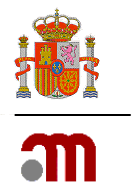
Página 8 de 53
2001/83/EC, irrespective of changes to the labelling of the medicinal product, which is used as an
investigational medicinal product.
p) "Authorised auxiliary medicinal product": A medicinal product authorised in accordance with
Regulation (EC) No 726/2004, or in any Member State concerned in accordance with Directive
2001/83/EC, irrespective of changes to the labelling of the medicinal product, which is used as an
auxiliary medicinal product.
q) "Member State concerned": The Member State where an application for authorisation of a
clinical trial or a substantial modification has been submitted under Chapters II or III of Regulation
(EC) No 536/2014 of the European Parliament and of the Council of 16 April 2014.
r) "Substantial modification": Any change to any aspect of the clinical trial which is made after
notification of the decision referred to in articles 8, 14, 19, 20 or 23 of Regulation (EC) No 536/2014
of the European Parliament and of the Council of 16 April 2014 and which is likely to have a
substantial impact on the safety or rights of the subjects or on the reliability and robustness of the
data generated in the clinical trial.
s) "Sponsor": An individual, company, institution or organisation which takes responsibility for
the initiation, management and setting up the financing of the clinical trial.
t) "Investigator": An individual responsible for the conduct of a clinical trial at a clinical trial site.
u) "Principal Investigator": An investigator who is the responsible leader of a team of
investigators who conduct a clinical trial at a clinical trial site.
v) "Trial subject": An individual who participates in a clinical trial, either as recipient of an
investigational medicinal product or as a control;
w) "Informed consent": A subject's free and voluntary expression of his or her willingness to
participate in a particular clinical trial, after having been informed of all aspects of the clinical trial that
are relevant to the subject’s decision to participate or, in the case of minors and of incapacitated
subjects, an authorisation or agreement from their legally designated representative to include them
in the clinical trial.
x) "Protocol": A document that describes the objectives, design, methodology, statistical
considerations and organisation of a clinical trial. The term "protocol" encompasses successive
versions of the protocol and protocol modifications.
y) "Investigator's brochure": A compilation of the clinical and non-clinical data on the
investigational medicinal product or products which are relevant to the study of said product or
products in humans.
z) "Manufacturing": The total and partial manufacture, as well as the various processes of
dividing up, packaging and labelling (including blinding).
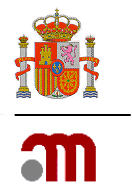
Página 9 de 53
aa) "Start of a clinical trial": The first act of recruitment of a potential subject for a specific clinical
trial, unless defined differently in the protocol.
ab) "End of a clinical trial": The last visit of the last subject or at a later point in time as defined in
the protocol.
ac) "Early termination of a clinical trial": The premature end of a clinical trial due to any reason
before the conditions specified in the protocol are complied with.
ad) "Temporary halt of a clinical trial": An interruption not provided in the protocol of the conduct
of a clinical trial by the sponsor with the intention of the sponsor to resume it.
ae) "Suspension of a clinical trial": Interruption of the conduct of a clinical trial by a Member
State.
af) "Good clinical practice": A set of detailed ethical and scientific quality requirements for
designing, conducting, performing, monitoring, auditing, recording, analysing and reporting clinical
trials ensuring that the rights, safety and well-being of subjects are protected, and that the data
generated in the clinical trial are reliable and robust.
ag) "Inspection": The act by a competent authority of conducting an official review of
documents, facilities, records, quality assurance arrangements, and any other resources that are
deemed by the competent authority to be related to the clinical trial and that may be located at the
clinical trial site, at the sponsor's and/or contract research organisation's facilities, or at any other
establishments which the competent authority sees fit to inspect.
ah) "Adverse event": Any untoward medical occurrence in a trial subject to whom a medicinal
product is administered and which does not necessarily have a causal relationship with this
treatment.
ai) "Serious adverse event": Any untoward medical occurrence that at any dose requires
inpatient hospitalisation or prolongation of existing hospitalisation, results in persistente or significant
disability or incapacity, results in a congenital anomaly or birth defect, is life-threatening, or results in
death.
aj) "Unexpected serious adverse reaction": A serious adverse reaction, whose nature, severity
or outcome is not consistent with the reference safety information.
ak) "Clinical study report": Report on the clinical trial presented in an easily searchable format,
prepared in accordance with Annex I, Part I, Module 5 of Directive 2001/83/EC and accompanying
an application for marketing authorisation.
2. The following definitions shall also be applied:
a) " Ethics Committee for Investigation (hereinafter CEI)": An independent body with a
multidisciplinary composition whose main purpose is to oversee the protection of the rights, safety
and well-being of subjects participating in a biomedical investigation project and offer public
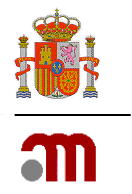
Página 10 de 53
assurance in this respect by giving an opinion on the corresponding documentation of the
investigation project, taking into account the views of laypersons, in particular, patients or patient
organisations.
b) "Ethics Committee for investigation with medicinal products (hereinafter CEIm)": Ethics
Committee for Investigation which is also accredited in accordance with the terms of this Royal
Decree to issue an opinion on a clinical study with medicinal products and on a clinical investigation
with medical devices.
c) "Co-sponsors": Those sponsors who conduct together a clinical trial and are subject to the
obligations of a sponsor under this Royal Decree, unless the sponsors establish otherwise in a
written contract setting out their respective responsibilities.
d) "Clinical investigation with medical devices": Any systematic investigation in one or more
human subjects undertaken to assess the safety or performance of a device.
e) "Non-commercial clinical research": Investigation conducted by investigators without the
participation of the pharmaceutical or medical devices industry, which fulfil all the following
characteristics:
1. The sponsor is a university, hospital, public scientific organisation, non-profit institution,
patient organisation or individual investigator.
2. The ownership of the investigation data belongs to the sponsor from the inception of the
study.
3. There are no agreements between the sponsor and third parties that allow them to use the
data for regulatory or marketing purposes.
4. The design, conduct, recruitment, recording of data and reporting of the results of the
investigation remains under the control of the sponsor.
5. Given their characteristics, these studies cannot be part of the development programme for a
marketing authorisation of a medicinal product.
f) "Coordinating investigator": Investigator responsible for coordinating the investigators of the
sites participating in a multicentre trial.
g) "Contracted clinical investigator": An investigator contracted by the site or related
investigation entities to conduct one or more clinical trials, provided they have the required
qualification to perform their assigned functions and are able to develop these in the clinical setting
of the site.
h) "Minor": A trial subject who is, according to Act 41/2002 of 14 November regulating patient
autonomy and rights and obligations in terms of clinical documentation and information, under the
age of legal competence to give his/her informed consent.
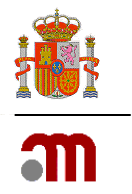
Página 11 de 53
i) "Monitor": A qualified professional with the necessary training and clinical and/or scientific
competence, chosen by the sponsor, who is responsible for the direct follow-up of the conduct of the
trial. The monitor is the link between the sponsor and the principal investigator when they are not the
same person. In no case should the monitor be part of the investigator team.
j) "Contract research organisation (hereinafter CRO)": A natural or legal person contracted by
the sponsor to perform the sponsor’s functions or duties in connection with the clinical trial.
k) "Incapacitated subject": A trial subject who is, for reasons other than the age of legal
competence to give informed consent, incapable of giving his/her informed consent according to
national law.
l) "Spanish Clinical Studies Registry": A database owned by Spanish Agency of Medicines and
Medical Devices, accessible on its website, publicly accessible and free of charge for any user,
whose purpose is to serve as a source of information on clinical trials for the general public.
For the purposes of this Registry, any investigation that prospectively assigns participating
subjects to one or more health-related interventions that are not medicinal products to study their
effects on health indicators shall be considered as "another type of clinical study".
m) "Legal representative of the sponsor": A person accredited by the sponsor to represent
him/her when the sponsor is not established in a Member State of the European Union.
n) "Legally designated representative": A natural or legal person, authority or body which, in
accordance with the national law of the Member State concerned, is empowered to give informed
consent on behalf of a subject who is an incapacitated subject or a minor.
ñ) "Substudy": A study that is part of the clinical trial but that may be related or not to the
primary study objective, in which some of the subjects included in the clinical trial participate
voluntarily and for which an additional informed consent is requested, for example, pharmacokinetic
or pharmacogenetic substudies.
CHAPTER II
Protection of trial subjects and informed consent
Article 3. General requirements.
1. A clinical trial subject to this Regulation may only be conducted when the CEIm and the
Spanish Agency of Medicines and Medical Devices have considered that all of the following
conditions are met:
a) The clinical trial is ethically and methodologically sound and is designed to obtain reliable and
robust data.
b) The anticipated benefits for the subjects or public health justify the foreseeable risks and
inconveniences and compliance with this condition is constantly monitored. However, the rights,
safety, human dignity, and well-being of the subjects prevail over any other interest.
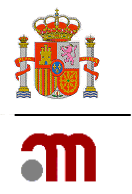
Página 12 de 53
c) Freely given informed consent is obtained and documented from each trial subject before the
subject is included in the trial in accordance with the terms laid down in articles 4 to 8.
d) The rights of the subjects as regards their physical and mental integrity, privacy and the
protection of the data concerning them are safeguarded in accordance with Organic Act 15/1999, of
13 December, on Personal Data Protection, and its development regulation, as well as European
regulations in force on this matter.
e) The clinical trial has been designed to involve as little pain, discomfort, fear and any other
foreseeable risk as possible for the trial subjects and both the level of risk and the degree of
discomfort are specifically defined in the protocol and constantly monitored.
f) The medical care provided to the subjects is the responsibility of an appropriately qualified
medical doctor, a qualified dental practitioner or any other healthcare professional, always in
accordance with their competencies to provide this necessary care.
g) The trial subject or, where the subject is not able to give informed consent, his/her legally
designated representative has been provided with the contact details of an entity where further
information can be received in case of need. In the case of persons with a disability, this
supplemental information shall be provided according to the rules established by the design for all
principle, so that it is accessible and comprehensible to them.
h) No undue influence, including that of a financial nature, is exerted on trial subjects to
participate in the clinical trial.
In this regard, subjects participating in trials with a potential direct benefit for the subject or their
legal representatives may only receive reimbursement from the sponsor of extraordinary expenses
and losses of productivity resulting from their participation in the trial. In special situations, the CEIm
may report favourably on compensation of trial subjects for the discomfort resulting from their
participation in said trial, provided that it is ensured that such compensation does not influence the
decision of the subject to participate in the study.
Whatever compensation may have been agreed for voluntary participation in the trial, it shall
always be received by the subject, although it shall be reduced in proportion to his/her participation
in the investigation, in the event that the subject decides to revoke consent and withdraw from the
trial.
i) The insurance or equivalent financial guarantee referred to in article 9.2 has been arranged,
or the coverage specified in article 9.4 for "low-intervention clinical trials" is available.
2. Clinical trials should be conducted in accordance with the Declaration of Helsinki on ethical
principles for medical research in human beings, approved by the General Assembly of the World
Medical Association, and taking into account the Oviedo Convention for the protection of human
rights and human dignity with regard to the application of Biology and Medicine, as well as any other
regulations that may apply.
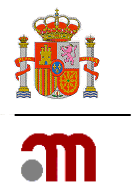
Página 13 de 53
3. In the case of collection of biological samples being envisaged in the clinical trial, appropriate
provisions shall be made so that on completion of the trial their use in research is in accordance with
the provisions of Royal Decree 1716/2011, of 18 November, which establishes the basic
requirements for authorisation and operation of biobanks for biomedical research purposes and the
processing of human biological samples, and regulates the operation and organisation of the
National Registry of Biobanks for biomedical research, particularly with regard to the relevant
sections of informed consent and possible documents for transfer of biological materials.
Article 4. Informed consent.
1. The obtaining and contents of the informed consent shall conform to the provisions of article
29 of Regulation (EU) No 536/2014 of the European Parliament and of the Council of 16 April 2014,
as well as to articles 8 and 9 of Act 41/2002 of 14 November.
2. When the person who is to give consent is an disabled person, the information shall be
provided in appropriate formats in accordance with the rules established by the design for all
principle, so that it is accessible and comprehensible for them, and the pertinent support measures
shall be agreed so as to facilitate their ability to provide their own consent.
3. In the case of minors or incapacitated persons, where consent has been given by their legally
designated representative, when their capacity to give their consent has been attained or recovered,
their consent must be obtained to continue participating in the clinical trial.
4. The person participating in the trial, particularly in the case of patients with special vulnerability,
shall be informed of the routes of access to the normal clinical practice for their pathology.
5. The person participating in a clinical trial, alone or with the assistance of his/her legally
designated representative, or a family member or other person close to the participant, may revoke
his/her consent at any time, without giving a reason and without it resulting in any detriment or
responsibility for the person participating. Withdrawal of consent shall not affect activities performed
based on the subject's consent before it was withdrawn, while also ensuring that neither the data or
samples obtained based on said consent may be used in analyses or studies after the date of
withdrawal unless the subject's consent is subsequently obtained to use them or, if the purpose is
legitimate, the information can be obtained from publicly accessible sources.
6. When collection of biological samples is envisaged in the clinical trial, the potential participant
must be informed about the provisions with regard to the future use of the samples. In accordance
with Royal Decree 1716/2011 of 18 November, the samples may be destroyed after the study is
completed, be incorporated into a collection or an authorised biobank. In the last two cases, the
participant shall be informed of the biobank or the person responsible for collection, as well as the
location where the samples shall be kept.
7. When a clinical trial is to be conducted exclusively in Spain, without prejudice to the
provisions in the previous paragraphs and notwithstanding the provisions in article 3 and in articles 5
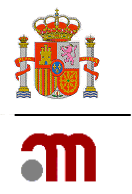
Página 14 de 53
to 8 of this Royal Decree, the investigator may be allowed to obtain informed consent by the
simplified means set out in paragraph 2 of article 30 of Regulation (EU) No 536/2014 of the
European Parliament and of the Council of 16 April 2014, provided all conditions set out in paragraph
3 of the aforementioned article 30 are fulfilled.
Article 5. Clinical trials on minors.
1. A clinical trial on minors may be conducted only when, in addition to the conditions set out in
articles 3 and 4 of this Royal Decree, all the conditions listed in article 32 of Regulation (EU) No
536/2014 of the European Parliament and of the Council, of 16 April 2014, are met.
2. The CEIm who is in charge of assessing Part II of the assessment report of a clinical trial on
minors must have paediatric experts among its members or have obtained advice on the clinical,
ethical and psychosocial issues in the field of paediatrics.
3. Prior informed consent of the parents who hold custody or of the legal representative of the
minor must be obtained, and the minor, if under 12 years of age, must be heard if the minor has
sufficient judgment. The informed consent form of the parents shall be valid provided it is signed by
one of them with the express or tacit consent of the other, which should be adequately documented,
as stipulated in article 156 of the Civil Code. When the subject's condition allows, or in any case
when the minor is twelve years of age or older, the subject must also give his/her consent to
participate in the trial.
Article 6. Clinical trials on incapacitated subjects.
1. A clinical trial may only be conducted on adults who are not in a state to give informed
consent and have not given, or refused to give consent prior to being incapacitated, when, in addition
to the conditions set out in articles 3 and 4 of this Royal Decree, all the conditions listed in article 31
of Regulation (EU) No 536/2014 of the European Parliament and of the Council, of 16 April 2014, are
met.
2. The protocol must be approved by an CEIm that has experts in the disease in question or has
obtained advice from experts on the clinical, ethical and psychosocial problems in the field of the
relevant disease and the patient population concerned.
3. Prior informed consent must have been obtained from the legal representative of the person
participating in a clinical trial or consent from a family member or other person close to the
participant, as appropriate. In any case, the investigator shall make reasonably sure that there are no
previous instructions of the person expressed in this regard before suffering a change in his/her
capacity, which must be respected. This possibility and the procedure to be followed must be
provided for in the trial documentation approved by the CEIm.
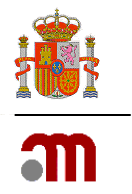
Página 15 de 53
Article 7. Clinical trials in emergency situations.
1. Notwithstanding the provisions laid down in article 3.1.c) and articles 4 to 6 of this Royal
Decree, when the clinical trial has a specific interest for the population where the investigation is
conducted, and the reasons for the need to administer the investigational medicinal product are
justified, a person may be included in a clinical trial without obtaining prior informed consent when all
the conditions listed in article 35, paragraphs 1 and 2, of Regulation (EU) No 536/2014 of the
European Parliament and of the Council, of 16 April 2014, are met.
2. In this case, whenever circumstances permit, family members or other persons close to the
subject shall be previously consulted.
3. This possibility and the procedure to be followed must be provided for in the trial
documentation approved by the CEIm, and the person or his/her legally designated representative
shall be informed as soon as possible and must give their consent to continue in the trial, where
appropriate, or ratify it in any case.
4. If the trial subject or, if applicable, his/her legal designated representative cannot give their
consent, they shall be informed of their right to object to the use of the data obtained from the clinical trial.
Article 8. Clinical trials on pregnant or breastfeeding women.
A clinical trial may only be conducted on pregnant or breastfeeding women if, in addition to the
conditions set out in articles 3 to 6 of this Royal Decree, all the conditions listed in article 33 of Regulation
(EU) No 536/2014 of the European Parliament and of the Council, of 16 April 2014, are met.
CHA
PTER III
D
amage compensation and liability scheme
Article 9. Damage compensation.
1. In clinical studies other than "low-intervention clinical trials", the sponsor shall ensure that the
trial subject is compensated for any damage suffered as a result of the trial. This compensation shall
be independent of the financial capacity of the sponsor, investigator, and site.
2. The trial sponsor is responsible for contracting insurance or a financial guarantee covering
the damage indicated in paragraph 1, as well as any liability that might be incurred by the sponsor,
principal investigator and members of the investigator team, including contracted clinical
investigators, and the hospital or site where the clinical trial is conducted, which must be
documented prior to the trial, unless it is a "low-intervention clinical trial".
3. In the case of clinical trials included in the definition of "non-commercial clinical research", an
application may be submitted without having contracted the insurance or financial guarantee referred
to in paragraph 2. However, in the event of a favourable opinion from the CEIm, the decision on

Página 16 de 53
authorisation of the trial shall be subject to the submission of this documentation to the CEIm within
thirty calendar days and the study may not be started until the required insurance or financial
guarantee is considered available.
4. Damage to the study subject that could result from a low-intervention clinical trial shall not
need to be covered by the insurance or financial guarantee referred to in paragraph 2 if it is covered
by the insurance of individual or collective professional civil liability insurance or equivalent financial
guarantee of the site where the clinical trial is conducted.
5. When the sponsor and principal investigator are the same person and the clinical trial is
conducted in a health centre belonging to the public health administration, the administration may
take the measures it deems appropriate to facilitate the guarantee of the specific risks resulting from
the trial in the terms set out in the above paragraphs, with the aim of promoting research.
6. The actions of "contracted clinical investigators" related to the medical care to the subject
which is provided during the conduct of the trial for reasons not related to or arising from the trial
must be covered by insurance similar or equivalent to that protecting the rest of the site personnel for
those aspects not covered by the clinical trial insurance.
Article 10. Liability scheme.
1. It shall be presumed, unless proven otherwise, that any harm to the health of a trial subject
during the course of the trial and within one year from the end of treatment has occurred as a result
of the trial. However, once the year has concluded, the trial subject is obliged to prove the
connection between the trial and the harm caused.
2. For the purposes of the liability scheme set out in this article, all expenses derived from
impairment in the health or physical status of the subject undergoing the clinical trial shall be
considered liable for compensation, as well as any economic losses directly derived from such
impairment, provided this is not inherent to the disease under study or due to the natural course of
the disease as a result of the ineffectiveness of treatment.
3. The minimum amount that shall be guaranteed as civil liability shall be 250,000 Euros per
subject undergoing the clinical trial, which may be received as a flat rate payment or as an income
equivalent to the same capital. A maximum insured capital or maximum amount of the financial
guarantee per clinical trial and per year of 2,500,000 Euros may be established.
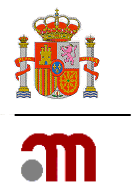
Página 17 de 53
CHAPTER IV
E
thics Committees for investigation with medicinal products
Article 11. Supervision and coordination of the Ethics Committees for investigation with
medicinal products.
1. The CEIm shall be supervised in ethical, training and material aspects in the same way as
other Ethics Committees for Investigation (CEI), in accordance with the regulations of the latter.
2. The Spanish Agency of Medicines and Medical Devices shall facilitate the assessment
procedure and issuing of an opinion by the CEIm in clinical trials with medicinal products in order to
integrate the assessment of one and the other into a single opinion per clinical trial, valid throughout
the Spanish State. For the integrated assessment to be positive, the assessment by the Spanish
Agency of Medicines and Medical Devices and the opinion of the CEIm must both be positive.
3. For coordination of the opinion in clinical trials with medicinal products, the Spanish Agency
of Medicines and Medical Devices shall carry out the following activities:
a) Facilitate the exchange of information between the Spanish Agency of Medicines and
Medical Devices and the CEIm.
b) Coordinate with the Autonomous Communities, the supervisory bodies of the CEI and the
CEIm, the development and maintenance of a single integrated information system for clinical trials
with medicinal products.
c) Manage the database of clinical trials with medicinal products of the national network of CEIm.
d) Provide advice to the CEIm on issues related to the procedure of clinical trials with medicinal
products.
e) Any other action related to the activities of the CEIm that fall under its responsibility in
accordance with applicable regulations.
Article 12. Functions of Ethics Committees for investigation with medicinal products.
1. The CEIm, in addition to the functions that could be commissioned as a CEI, shall perform
the following functions with regard to the assessment of clinical trials with medicinal products or
medical devices:
a) Assess the methodological, ethical and legal aspects and issue the respective opinion.
b) Assess substantial modifications to authorised clinical trials and issue the respective opinion.
c) Conduct a follow-up of the study from its initiation to receipt of the final report.
2. To perform these functions in clinical trials with medicinal products, the provisions set out in
Chapter V should be taken into account.
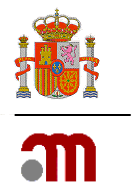
Página 18 de 53
Article 13. Accreditation of Ethics Committees for investigation with medicinal products.
1. In addition to the requirements established for the accreditation of the CEI in Act 14/2007, of
3 July, on Biomedical Research and its development regulations, CEIm must meet the specific
requirements for accreditation set out in this Royal Decree.
2. CEIm shall be accredited by the competent health authority in each Autonomous Community
or, in the case of sites belonging to the General State Administration, by the competent State body.
The Spanish Agency of Medicines and Medical Devices, in coordination with the Autonomous
Communities, through the Technical Inspection Committee, shall set common specific criteria for the
accreditation, inspection, and renewal of accreditation of these committees.
3. This accreditation must be renewed periodically by the competent health authority, without
prejudice to the procedure provided for maintenance of accreditation as a CEI, according to the
procedures and timelines established by the Technical Inspection Committee. Both the initial
accreditation and its renewals must be notified to the Spanish Agency of Medicines and Medical
Devices, which shall publish them on its website, as well as to whom is determined in the applicable
regulations of the CEI.
Article 14. Technical secretariat.
1. Each accredited CEIm must have a stable professional technical secretary integrated in the
organisational chart of the institution to which this person is assigned or from its supporting institutions.
2. The technical secretariat shall have the following functions:
a) To manage the activity of the CEIm.
b) To act as the interlocutor on behalf of the CEIm as regards communication with all agents
concerned, including the Spanish Agency of Medicines and Medical Devices.
c) To ensure that the necessary on-site and non-on-site meetings are held so that the CEIm
complies with its duties in the established time periods.
d) To prepare, in collaboration with the members of the CEIm, any reports that are requested by
the Spanish Agency of Medicines and Medical Devices or any other competent authority to maintain
its accreditation as an CEIm.
3. The technical secretariat must have the following resources and facilities:
a) A person in charge holding a higher degree and with knowledge of medicine, investigation
methodology, bioethics, pharmacology, and medicinal product regulation and biomedical
investigation in general.
b) Specific facilities for the performance of their work under conditions that ensure
confidentiality. They should have an appropriate space for holding meetings and for the handling and
filing of confidential documents.
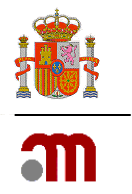
Página 19 de 53
c) Computer equipment with sufficient capacity to handle all the information received and
generated by the committee and connection to the information system of the country-specific
database of clinical trials with medicinal products and "EU portal" and "EU database", when they are
available.
d) A specific annual financial budget, approved by the management of the institution, to be used
for training activities organised for members of the CEIm and, where appropriate, a budget allocated
to allowances for attendance of its members or possible experts or guests.
Article 15. Composition of Ethics Committees for investigation with medicinal products.
1. The CEIm shall include a minimum of ten members, at least one of which shall be a
layperson outside the field of biomedical investigation or clinical care, who shall represent the
interests of patients.
The members of this committee shall include physicians, one of whom shall be a clinical
pharmacologist, a hospital or primary care pharmacist and a certified or graduate nurse.
If there is a Committee for Investigation or an Ethics Committee for clinical practice in the site, a
member of each should be included in the CEIm.
At least two members must be professionals outside the field of healthcare, one of whom should
have a law degree.
In addition, at least one of its members must have accredited training in bioethics.
2. The composition of the CEIm should ensure the independence of its decisions and the
competence and experience of its members in the methodological, ethical and legal aspects of
research, pharmacology, and clinical care practice in both hospital and community medicine.
3. The CEIm shall have a Chair, a Vice-Chair, and a technical secretary who shall
simultaneously have the consideration of committee members.
The Chair shall be the representative of the committee and its holder shall be chosen by the
members in such a way that independence is ensured.
The Vice-Chair shall be selected similarly and shall perform the functions of the Chair in cases
of vacancy, absence or illness of its holder.
The head of the technical secretariat shall correspond to the person mentioned in article 14.3.a).
All committee members shall have one vote of equal value except for the holder of the technical
secretariat who shall have voice but no vote.
4. The CEIm shall ensure a system for renewal of members that allows new members to be
incorporated on a regular basis while also maintaining the experience of the committee.
5. Membership of an CEIm shall be incompatible with any other class of interests derived from
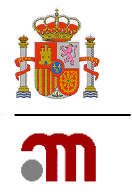
Página 20 de 53
the manufacture or sale of medicines and medical devices. Members of the CEIm must ensure the
confidentiality of the information to which they have access and must make a public conflict of
interest statement.
6. The competent authorities with regard to the CEIm shall establish criteria by which the
activities of its members may have a positive impact on their professional career.
Article 16. General rules on the functioning of Ethics Committees for investigation with medicinal
products.
1. Neither the CEIm as a whole nor any of its members may receive directly nor indirectly any
remuneration from the study sponsor.
2. The collection of fees for performance of any of the functions of the CEIm referred to in article
12 shall be governed by article 33.
An agreement between the site and the sponsor for payment of administrative expenses shall
be possible, but it must always be regulated as an additional economical condition to those specified
in the contract referred to in article 32.1, or be published by the competent national or autonomic
health authority in their respective official journals and, in any event, may never be established as an
item contingent on compliance with any of the functions of the CEIm referred to in article 12.
3. The CEIm must prepare and follow standard operating procedures for its functioning, which
should refer to at least the following:
a) The composition and requirements that must be fulfilled by its members.
b) The frequency of on-site and non-on-site meetings which must at least ensure compliance
with the assessment timelines of this Royal Decree. The CEIm shall make public the schedule of its
meetings with information about its availability for assessment of new clinical studies at each
meeting.
c) The procedure for convening its members.
d) The aspects relating to administrative functioning.
e) The cases in which an expedited review of the documentation of a clinical study may be
performed and the procedure to be followed in these cases, including "low-intervention clinical trials".
f) The initial assessment of protocols and the procedure for follow-up of studies.
g) The mechanisms for ordinary and extraordinary decision-making which should include a
written procedure for decision-making.
h) The preparation and approval of the minutes of the meetings.
i) The archiving and storage of committee documentation and that related to assessed clinical
trials in accordance with paragraph 7.

Página 21 de 53
j) A procedure to declare an incompatibility occurring in a member of the CEIm and the
guarantees to ensure confidentiality in its internal functioning.
4. When the CEIm does not possess the knowledge and experience necessary to evaluate a
specific clinical study, it shall seek the advice of at least one expert not belonging to the committee,
who shall be obliged to maintain confidentiality. This advice shall be considered specifically when:
a) The committee assesses clinical research protocols with surgical procedures, diagnostic
techniques, medical devices or advanced therapies. In this case, it shall be advised by at least one
expert in the procedure or technology to be assessed.
b) The committee assesses clinical trials on subjects with special vulnerability. In this case, it
shall be advised by at least one person with experience in the treatment of the study population and,
if applicable, in the treatment of the disease.
5. The principal investigator or members of the investigator team of a clinical study cannot be
take part in the assessment or give an opinion on their own protocol, even when they are members
of the committee. When such circumstances occur, it shall be noted in the minutes referring to the
assessment of the trial by the committee that this principle was respected.
6. Non-on-site meetings may be held by telephone multiconference, videoconference or any other
analogous system, so that members of the CEIm can attend this meeting by the indicated system,
provided communication between them is ensured in real time and, therefore, the unity of the act.
Each meeting of the CEIm shall be recorded in the corresponding minutes, which as a minimum
shall specify the members in attendance, both on-site and non-on-site, and the consultants
attending, if applicable, and it shall be indicated that for each assessed study the aspects included in
the applicable regulation have been considered and the decision adopted for each study shall be
recorded.
7. The committees shall keep all essential documents related to each clinical study assessed for
at least three years after completion of the study or for a longer period if this is established by the
Spanish Agency of Medicines and Medical Devices in collaboration with the Autonomous
Communities. The contents of the clinical trial file shall be indicated in the instructions for the conduct of
clinical trials in Spain that are published by the Spanish Agency of Medicines and Medical Devices.
CHA
PTER V
S
ubmission, validation, and procedure for assessment and authorisation of clinical trials with
medicinal products
Section 1. Common provisions
Article 17. Requirements for the conduct of clinical trials.
1. Clinical trials with medicinal products shall be subject to prior authorisation from the Spanish
Agency of Medicines and Medical Devices, after a scientific and ethical assessment of Parts I and II.
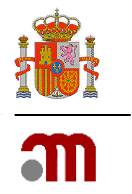
Página 22 de 53
2. In order to start a clinical trial with medicinal products in a site, the following shall be required:
a) The favourable opinion issued by an CEIm in Spain as indicated in article 24, which shall be
single and binding.
b) The decision for authorisation by the Spanish Agency of Medicines and Medical Devices.
c) The agreement of the participating site management which shall be expressed by the signing
of the contract between the sponsor and the site referred to in article 32. Only in clinical trials in
which the sponsor/investigator belongs to the site and signing of the contract is not required shall the
express agreement of the participating site management be required.
This contract may be concluded at any time and shall be effective when the clinical trial is
authorised by the Spanish Agency of Medicines and Medical Devices and the favourable opinion of
the CEIm for conducting the trial at said site is available.
3. No clinical trials with gene therapy medicinal products which result in modifications to the
subject's germ line genetic identity may be conducted.
Article 18. Collaboration and information exchange between the Spanish Agency of Medicines
and Medical Devices and the CEIm.
1. The Spanish Agency of Medicines and Medical Devices shall establish the mechanisms and
procedures for cooperation and exchange of information on clinical studies with medicinal products
and clinical investigations with medical devices with the CEIm, which shall be made public.
2. This shall be set out in a "collaboration memo" containing and specifying the responsibilities
of the CEIm and of the Spanish Agency of Medicines and Medical Devices, as well as those aspects
which, in accordance with article 22 and successive articles, shall be subject to assessment and
responsibility by each of them, so as to ensure the greatest efficiency and guarantees in the
assessment and permit, in the multinational clinical trials conducted in the European Union, a single
decision for Spain.
3. The "collaboration memo" shall establish which parts of the application dossier shall be
submitted in Spanish and which may be accepted in a language commonly understood in the
medical field as indicated in Regulation (EU) No 536/2014 of the European Parliament and of the
Council, of 16 April 2014.
Article 19. Exchange of information between the Spanish Agency of Medicines and Medical
Devices and the Autonomous Communities.
1. The Spanish Agency of Medicines and Medical Devices shall establish with the competent
bodies of the Autonomous Communities the framework of cooperation and a procedure for exchange
of information on clinical studies with medicinal products and clinical investigations with medical
devices.
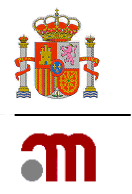
Página 23 de 53
2. The instructions for the conduct of clinical trials in Spain published by the Spanish Agency of
Medicines and Medical Devices shall contain the contact points of the Autonomous Communities to
which the information must be sent while this process is still not available.
Article 20. Aspects of a clinical trial requiring assessment.
1. The CEIm and the Spanish Agency of Medicines and Medical Devices shall assess the
clinical trial documentation.
2. The assessment shall be differentiated into two parts, called Part I and Part II of the
assessment report:
a) Part I shall include the aspects listed in article 6 of Regulation (EU) No 536/2014 of the
European Parliament and of the Council, of April 16 2014.
b) Part II shall include the aspects listed in article 7 of Regulation (EU) No 536/2014 of the
European Parliament and of the Council, of 16 April 2014. The assessment referred to in point h) of
paragraph 1 of article 7 must include the arrangements as regards the collection, storage and
possible future use of the biological samples of trial subjects obtained at the same site or
collaborating sites, including pre-screening samples of the subjects, ensuring that no procedure is
performed that would prevent future application of article 3.2 of Royal Decree 1716/2011, of 18
November.
3. The Spanish Agency of Medicines and Medical Devices and CEIm shall agree in the
"collaboration memo" on the distribution of responsibilities for the assessment of applications.
4. In accordance with article 29.5 of Royal Decree Act 9/2014, of 4 July, establishing the
standards of quality and safety for the donation, procurement, testing, processing, safeguarding,
storage and distribution of human tissues and cells and approving the standards of coordination and
operation for use in humans, in cell therapy clinical trials, in addition to the provisions in paragraph 2,
the Spanish Agency of Medicines and Medical Devices shall request a report from the National
Transplant Organisation. This report must be issued in the form and timelines required for fulfilling
the requirements set out in Regulation (EU) No 536/2014 of the European Parliament and of the
Council, of 16 April 2014.
Section 2. Procedure for authorisation of a clinical trial
Article 21. Submission of applications and receipt of notifications.
1. The sponsors shall submit their applications and communications and shall receive
notifications through the portal mentioned in article 80 of Regulation (EU) No 536/2014 of the
European Parliament and of the Council, of 16 April 2014 ("EU portal"), addressed to the Spanish
Agency of Medicines and Medical Devices and the CEIm that has accepted the assessment.
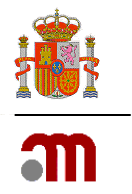
Página 24 de 53
2. The documentation that must accompany the application for authorisation and an opinion on
the clinical trial is set out in Annex I of Regulation (EU) No 536/2014 of the European Parliament and
of the Council, of 16 April 2014, in current European guidelines and, if applicable, in the instructions
for the conduct of clinical trials in Spain which, developing the aforementioned Annex I, are published
by the Spanish Agency of Medicines and Medical Devices.
Article 22. Validation of the application.
1. The Spanish Agency of Medicines and Medical Devices shall assess whether or not to accept
the status of "clinical trial" for the study and shall verify that the application is complete with regard to
the documents of Part I, so as to perform the assessment referred to in article 6 of Regulation (EU)
No 536/2014 of the European Parliament and of the Council, of 16 April 2014.
2. The CEIm shall verify that the application is complete regarding the documents of Part II so
as to perform the assessment referred to in article 7 of Regulation (EU) No 536/2014 of the
European Parliament and of the Council, of 16 April 2014.
3. The validation shall be performed in accordance with the timelines and the procedure set out
in article 5 of Regulation (EU) No 536/2014 of the European Parliament and of the Council, of 16
April 2014.
Article 23. Part I of the assessment report.
1. The Spanish Agency of Medicines and Medical Devices shall be responsible for notifying the
sponsor of Part I of the assessment report, including those aspects that have been assessed by the
CEIm, in such a way that the sponsor is notified in the timelines and according to the procedure
indicated in article 6 of Regulation (EU) No 536/2014 of the European Parliament and of the Council,
of 16 April 2014.
2. The participation of the CEIm in the assessment of Part I shall be established in the
collaboration memo referred to in article 18, as well as the timelines for transmitting its report to the
Spanish Agency of Medicines and Medical Devices, so that the indications in the preceding
paragraph can be adhered to.
3. In the case of an assessment coordinated by a reporting Member State, the terms specified
in paragraph 2 of article 8 of Regulation (EU) No 536/2014 of the European Parliament and of the
Council, of 16 April 2014, shall be borne in mind.
Article 24. Part II of the assessment report.
The CEIm shall be responsible for preparing Part II of the assessment report so that it is in
compliance with the timelines and the procedure specified in article 7 of Regulation (EU) No
536/2014 of the European Parliament and of the Council, of 16 April 2014.
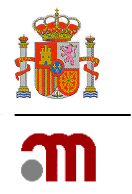
Página 25 de 53
Article 25. Decision on authorisation.
1. The Director of the Spanish Agency of Medicines and Medical Devices, within five days as
prescribed in article 8 of Regulation (EU) No 536/2014 of the European Parliament and of the
Council, of 16 April 2014, shall issue the decision authorising the clinical trial, authorising the clinical
trial subject to conditions, or refusing the authorisation.
2. This decision ends the administrative proceedings, so the interested party may file an appeal
for reversal or reconsideration in accordance with the provisions set forth in articles 116 and 117 of
Act 30/1992, of 26 November, on the Legal Regime of Public Administration and Common
Administrative Procedure or a contentious-administrative appeal in accordance with Act 29/1998, of
13 July, on Contentious-Administrative Jurisdiction.
3. The authorisation of the clinical trial shall be understood to be granted without prejudice to the
application, where appropriate, of Act 9/2003, of 25 April, on the legal regime of confined utilisation,
voluntary release and commercialisation of genetically modified organisms.
Article 26. Modification of the conditions of authorisation of clinical trials.
1. Any "substantial modification" in the authorised conditions for a clinical trial may not be made
without the prior favourable opinion of the CEIm and authorisation from the Spanish Agency of
Medicines and Medical Devices.
However, should there be any circumstances that might affect the safety of the participating
subjects, the sponsor and the investigator shall take the appropriate urgent safety measures to
protect the subjects against any immediate risk. The sponsor shall inform both the Spanish Agency
of Medicines and Medical Devices and the CEIm of these circumstances and the measures taken as
soon as possible.
2. As a rule, the CEIm and the Spanish Agency of Medicines Products and Medical Devices
shall assess those aspects on which they had already reached a decision in the initial assessment
report referred to in articles 23 and 24, without prejudice to when the "collaboration memo" referred
to in article 18 establishes a different distribution of the tasks.
3. The application must be submitted to the Spanish Agency of Medicines and Medical Devices and
to the CEIm that assessed the initial application as indicated in Chapter III and article 25 of Regulation
(EU) No 536/2014 of the European Parliament and of the Council, of 16 April 2014, in current European
guidelines and, where appropriate, in the corresponding part of the instructions for the conduct of clinical
trials in Spain published by the Spanish Agency of Medicines and Medical Devices.
4. The validation and assessment of Part II of the substantial modification by the CEIm, where
applicable, shall be in accordance with the deadlines and assessment procedure set out in articles
20, 21 and 22 of Regulation (EU) No 536/2014 of the European Parliament and of the Council, of 16
April 2014.
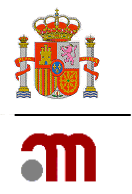
Página 26 de 53
5. The validation and assessment of Part I of the substantial modification by the Spanish
Agency of Medicines and Medical Devices shall be in accordance with the terms specified in articles
17, 18, 21 and 22 of Regulation (EU) No 536/2014 of the European Parliament and of the Council, of
16 April 2014.
6. The authorisation decision shall be issued taking into account the provisions contained in
articles 19, 20, and 23 of Regulation (EU) No 536/2014 of the European Parliament and of the
Council, of 16 April 2014, and as indicated in article 25 of this Royal Decree. However, in the event
of substantial modifications that only involve changes in aspects included in Part II of the
assessment report, the authorisation shall be considered granted or refused on the date when the
CEIm informs the sponsor of its decision with the conclusions of Part II of the assessment report.
Article 27. Suspension or revocation of the authorisation of a clinical trial.
1. The authorisation of the clinical trial shall be suspended or revoked, ex officio or on the
justified request by the sponsor, by decision of the Spanish Agency of Medicines and Medical
Devices in the cases listed in article 77 of Regulation (EU) No 536/2014 of the European Parliament
and of the Council, of 16 April 2014.
2. The decision to suspend or revoke authorisation of the trial shall be adopted by the Spanish
Agency of Medicines and Medical Devices after initiating the appropriate procedure, including
granting a hearing to the interested party who must reply within seven calendar days from notification
of the start of the procedure.
Once this decision is adopted, the Spanish Agency of medicines and Medical Devices shall
notify the decision reached, expressly indicating the reasons, to the CEIm, the European
Commission, the European Medicines Agency, the health authorities of the Autonomous
Communities and the health authorities of other Member States.
3. The health authorities of the Autonomous Communities may order a precautionary
suspension of the clinical trial in the cases laid down in paragraph 1 and shall notify it immediately,
accompanied by a duly detailed and justified report, to the Spanish Agency of Medicines and Medical
Devices, which, in accordance with that established in paragraph 2, shall decide on suspension or
revocation of the clinical trial authorisation or, where appropriate, lift the precautionary measure.
4. This decision ends the administrative proceedings, so the interested party may file an appeal
for reversal or reconsideration in accordance with the provisions set forth in articles 116 and 117 of
Act 30/1992, of 26 November, or a contentious-administrative appeal in compliance with Act
29/1998, of 13 July.
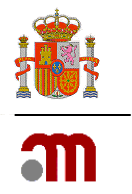
Página 27 de 53
Article 28. Corrective measures to be adopted by the Spanish Agency of Medicines and Medical
Devices.
1. The Spanish Agency of Medicines and Medical Devices, ex officio or on justified request by
the CEIm may require the sponsor to modify any aspect of the clinical trial.
2. The decision to require modification of any aspect of the trial shall be adopted after initiating
the appropriate procedure, including granting of a hearing to the interested party, who must reply
within seven calendar days from notification of the start of the procedure.
3. This decision ends the administrative proceedings, so the interested party may file an appeal
for reversal or reconsideration in accordance with the provision set forth in articles 116 and 117 of
Act 30/1992, of 26 November, or a contentious-administrative appeal in accordance with Act
29/1998, of 13 July.
Article 29. Reporting of serious breaches.
1. Serious breaches of the authorised protocol or of this Royal Decree occurring in Spain must
be reported by the sponsor without undue delay and no later than seven calendar days from
becoming aware of the breach to the Spanish Agency of Medicines and Medical Devices and the
CEIm by the means indicated in article 21.
2. To this end, a serious breach shall be defined as a breach that may significantly affect the
safety and rights of the trial subjects or the reliability and robustness of the data generated in the
clinical trial.
3. The Spanish Agency of Medicines and Medical Devices shall inform the health authorities of
the Autonomous Communities on those serious breaches directly affecting sites belonging to their
community.
Article 30. End of a clinical trial, temporary halt and early termination of a clinical trial and
submission of the results.
1. The sponsor shall notify the date of the end of the clinical trial in Spain, the date of the end of
the clinical trial in all countries where the trial has been conducted, as well as any temporary halt of
the trial and the results thereof in accordance with the timelines and the procedure indicated in
articles 37 and 38 of Regulation (EU) No 536/2014 of the European Parliament and of the Council, of
16 April 2014.
2. In the event of early termination of the clinical trial, the notification shall indicate the reasons
for such action and shall specify the follow-up measures, without prejudice to the subsequent
sending of the summary of the results required in Annexes IV and V of Regulation (EU) No 536/2014
of the European Parliament and of the Council, of 16 April 2014. This information shall be
transmitted to the health authorities of the Autonomous Communities as specified in article 19. The
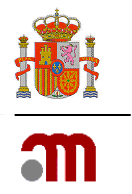
Página 28 de 53
date of the end of the clinical trial and the reasons for early termination must be published by the
Spanish Agency of Medicines and Medical Devices.
CHAPTER VI
C
ontinuation of treatment after the trial
Article 31. Continuation of treatment with a medicinal product without marketing authorisation in
Spain after the end of the trial.
Any continuation in the administration of an investigational medicinal product without marketing
authorisation in Spain to subjects who have completed their participation in a clinical trial, for as long
as the medicinal product is not actually marketed in Spain for those conditions of use, shall be
governed by the rules established in Royal Decree 1015/2009, of 19 June, regulating the availability
of medicinal products in special situations. Supply of these medicinal products should adhere to the
provisions contained in paragraph f) of article 39.3, if the sponsor obtains any information from the
administration and use of said medicinal product under these conditions.
CHAPTER VII
Financial aspects
Article 32. Financial aspects of a clinical trial.
1. All financial aspects related to a clinical trial must be reflected in a contract between the
sponsor and each of the sites where the trial is to be conducted.
A financial budget for the project including all the aspects specified in the contract of all
participating sites must be sent to the CEIm.
2. The competent health administrations for each health department shall establish common
requirements and conditions for financing and shall agree on a single contract form which shall be
valid for the whole National Health System. This single contract form shall be prepared in
accordance with the general principles of coordination agreed by the Inter-Territorial Board of the
National Health System and must have its approval before it is used.
3. The contract shall state:
a) The initial budget for the clinical trial, specifying the indirect costs that shall be applied by the
site as well as the extraordinary direct costs, considering as such any extra expenses to those which
would have been incurred if the subject had not participated in the clinical trial, such as:
1. Additional laboratory tests and examinations.
2. Changes in the duration of the care afforded to patients.
3. Reimbursement of expenses to patients.
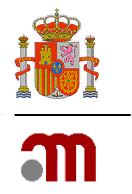
Página 29 de 53
4. Purchase of devices and compensation for trial subjects and investigators.
b) The payment terms and periods.
c) Any other subsidiary liability assumed by the parties in accordance with the conditions
established in each site.
4. No additional amounts to those foreseen in the financial budget submitted to the CEIm may
be required by the sites, except for those which may be approved in accordance with article 31 and
that referred to in article 16.
Article 33. Fees.
1. Pursuant to article 87 of Regulation (EU) No 536/2014 of the European Parliament and of the
Council, of 16 April 2014, payment of a single fee shall be required for the assessment of a clinical
trial, regardless of whether various organisations are involved in the assessment. This fee shall be
set in the current legislation in a transparent manner and on the basis of cost recovery principles.
The sponsor must pay this fee to the Spanish Agency of Medicines and Medical Devices which shall
be responsible for transferring to the CEIm the part corresponding to their assessment.
2. In no case may the payment of fees not covered in the corresponding legal framework be
required by the sites with regard to the conduct of the trial or in connection with the performance of
any of the functions of an CEIm related to the assessments referred to in article 12.
3. Clinical studies corresponding to the definition of "non-commercial clinical research" shall
benefit from the exemptions of fees or reduced fees, in accordance with the consolidated text of the
Act on guarantees and rational use of medicinal products and medical devices, approved by Royal
Legislative Decree 1/2015, of 24 July.
CHAPTER VIII
Medicinal products used in a clinical trial
Article 34. Manufacture and importation of investigational medicinal products or auxiliary
medicinal products.
1. The manufacture and importation of investigational medicinal products for their use in the
context of a clinical trial can only be performed by manufacturers and importers of medicinal
products that have the appropriate authorisation in accordance with the provisions of Royal Decree
824/2010, of 25 June, regulating pharmaceutical laboratories, manufacturers of active substances for
pharmaceutical use and foreign trade in medicinal products and investigational medicinal products.
2. The aforementioned authorisation shall not be required for relabelling or repackaging, if it is
performed at an authorised pharmacy department of a participating site, provided the investigational
medicinal products are intended to be used only in hospitals, health centres, or clinics participating in
the same clinical trial.
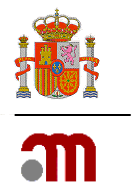
Página 30 de 53
3. When in the context of a specific clinical trial whose sponsor is an investigator or a group of
investigators, an authorised pharmacy of a participating site wishes to perform a manufacturing
operation different from those previously considered, it must request prior authorisation from the
Spanish Agency of Medicines and Medical Devices and the medicinal product may only be used in
the specific clinical trial. The Spanish Agency of Medicines and Medical Devices shall agree with the
Autonomous Communities on the verification procedures of good manufacturing practice of
medicinal products applicable in these cases.
4. In addition, the authorisation as a manufacturer and importer of medicinal products indicated
in paragraph 1 shall not be required for sites linked to the National Health System where
investigational advanced therapy medicinal products are prepared for use in clinical trials approved
by the Spanish Agency of Medicines and Medical Devices, without prejudice to the requirement for
specific quality standards.
5. The manufacture of investigational medicinal products must comply with the applicable
guidelines of good manufacturing practice in the European Union.
6. The manufacturer must have permanently and continuously at their disposal a qualified
person or technical director, in accordance with the provisions of Royal Decree 824/2010, of 25
June. The responsibilities of the qualified person or technical director are established in the
aforementioned Royal Decree.
In the case of an investigational medicinal product from a third country and that has a marketing
authorisation in that country, when documentation cannot be obtained to certify that each
manufacturing batch was manufactured according to correct manufacturing practices at least
equivalent to those indicated above, the qualified person or technical director must ensure that each
manufacturing batch has been subject to all the pertinent analyses, tests or checks required to verify
its quality.
7. The authorisation for the importation of investigational medicinal products for use in the
context of a clinical trial shall be considered as granted if within sixty calendar days from receipt of
the application, the Spanish Agency of Medicines and Medical Devices has not notified any
reasoned objections to the sponsor, provided that the trial is authorised.
8. The application for importation of investigational medicinal products may be requested in a
single act with the application for conduct of the clinical trial for which they are intended.
The authorisation for manufacture or importation of blood derivatives, narcotics or psychotropic
agents shall be governed by the specific regulations in this area.
Article 35. Labelling.
1. Labelling of the investigational or auxiliary medicinal products shall be as indicated in articles
66 to 68 of Regulation (EU) No 536/2014 of the European Parliament and of the Council, of 16 April
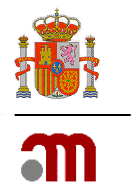
Página 31 de 53
2014, taking into account the requirements set out in the detailed guidelines for good manufacturing
practice applicable to investigational medicinal products in the European Union and, where
applicable, the instructions of the Spanish Agency of Medicines and Medical Devices.
2. Except for justified exceptions, labelling should appear in at least the official language of the
State.
Article 36. Purchase of medicinal products for clinical trials.
1. Wholesalers and pharmaceutical manufacturers may supply to the sponsor of an authorised
clinical trial the medicinal products included in this trial, against prior presentation by the same of the
authorisation issued by the Spanish Agency of Medicines and Medical Devices for the trial.
2. When the medicinal products to be used in a clinical trial come from a third country, the
provisions in article 34 as regards importation of investigational medicinal products shall be borne in
mind.
Article 37. Remaining medication of a clinical trial.
1. In the case of investigational medicinal products and auxiliary medicinal products marketed in
Spain, once the clinical trial has ended, the remaining packs that are unchanged, that is, which have
not been modified either in their inmediate or outer packaging, may be used in normal clinical
practice, in the conditions stipulated in its marketing authorisation and always under express and
previous authorisation by the sponsor.
2. In the case of investigational medicinal products not marketed in Spain, after finalisation of
the clinical trial the sponsor may request the use of unaltered remaining packs for continuation of
treatment outside the study in accordance with the terms specified in article 31.
CHAPTER IX
G
ood clinical practice guidelines
Article 38. Good clinical practice guidelines.
1. The sponsor of a clinical trial and the investigator shall ensure that the clinical trial complies
with the protocol and with the principles of good clinical practice.
2. Without prejudice to other provisions, the sponsor and the investigator, when preparing the
protocol and applying this Royal Decree to the protocol, shall take duly into account the quality
standards and guidelines of the International Conference on Harmonisation (ICH) on good clinical
practice.
3. Clinical trials with advanced therapy medicinal products shall additionally comply with the
guidelines for good clinical practice which are specific for advanced therapy medicinal products.
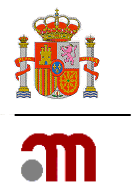
Página 32 de 53
4. The Spanish Agency of Medicines and Medical Devices shall make the good clinical practice
guidelines referred to in this article publicly accessible.
Article 39 Sponsor.
1. The sponsor or his/her legal representative must be established in one of the Member States
of the European Union.
2. The sponsor is responsible for signing the application for an opinion by the CEIm and the
application for authorisation by the Spanish Agency of Medicines and Medical Devices.
3. The responsibilities of the sponsor are:
a) To establish and maintain a quality assurance and quality control system with written
standard operating procedures so as to ensure that trials are conducted and data are generated,
documented and reported in compliance with the protocol, good clinical practice guidelines and the
provisions of this Royal Decree. The sponsor should have in place standard operating procedures to
ensure quality standards in all the phases of documentation of an adverse event, data collection,
validation, assessment, archiving, reporting and follow-up.
b) To sign jointly with the relevant investigator the protocol and any amendment to the protocol.
c) To select the most suitable investigator based on his/her qualifications and available
resources, and to ensure said investigator conducts the trial as specified in the protocol.
d) To provide all the basic and clinical information available on the investigational product and
maintain it updated throughout the duration of the trial.
e) To request the opinion of the CEIm and the authorisation by the Spanish Agency of
Medicines and Medical Devices, as well as notifying them of the start of the trial, serious breaches of
the protocol and other required information, and to obtain the relevant authorisations, without
prejudice to the notifications that must be submitted to Autonomous Communities in accordance with
article 19.
f) To provide the investigational medicinal products at no cost and to ensure that they have been
prepared according to good manufacturing practice and the samples are suitably packaged and
labelled. The sponsor is also responsible for the storage of samples and their manufacturing and
quality control protocols, keeping records of the samples delivered and ensuring that the site where the
trial is conducted establishes a procedure for the correct handling, storage and use of these samples.
In clinical trials sponsored by an investigator of a site or a non-profit scientific entity, or in those
where there is mutual agreement with the site management where the clinical trial is to be
conducted, other means of supply may be agreed with the site, particularly when treatment of the
patients in the trial, or part of it, was that they would receive in the event of having decided not to
participate in the trial.
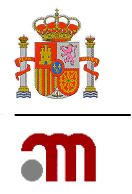
Página 33 de 53
g) To ensure that participation of a subject in the clinical trial shall involve no other additional
cost than that which the subject would have had to incur in the context of normal clinical practice.
h) To appoint the monitor who shall supervise the conduct of the trial.
i) To report suspected unexpected serious adverse reactions in accordance with articles 49 to 53.
j) To immediately provide the investigator, the Spanish Agency of Medicines and Medical
Devices and the CEIm with any significant information related to the clinical trial to which the sponsor
has access during the trial.
k) To comply with the obligations of damage compensation according to the terms provided in
article 9. To provide the legal and financial cover to the investigator in these cases, except when the
injury arises from negligence or malpractice on the part of the investigator.
l) To agree with the investigator on the obligations for data processing, preparation of reports
and publication of results. In any case, the sponsor is responsible for preparing the final report and
annual reports of the clinical trial and for submitting them to the appropriate authorities.
m) The sponsor shall provide a contact point where the trial subjects may obtain further
information about the clinical trial, which may be optionally delegated to the investigator.
n) To comply with the obligations that are imposed by the Spanish Clinical Studies Registry for
publication of the clinical trials of which it is the sponsor.
ñ) To agree with the investigator, the site management and the CEIm on alternative modes of
distribution in those cases where the site has no Pharmacy Department. In this case, shipments of
the investigational products to the research site by the sponsor shall be possible, the investigator of
this site assuming the responsibilities as regards correct administration, custody and delivery of
these medicinal products, in accordance with that specified in the study protocol.
4. The sponsor of a clinical trial may delegate all or part of his/her tasks to an individual, a
contract research organisation (CRO), an institution or body, which must have a quality assurance
and quality control system.
5. Sponsor obligations established in good clinical practice guidelines that have been delegated
shall apply to the contracted individual, CRO, company, institution or body. However, in these cases,
the sponsor shall still be responsible for ensuring that the conduct of the clinical trial and the final
data generated in this study comply with the provisions in this Royal Decree. Any delegation of
sponsor functions in connection with a clinical trial should be specifically documented in a contract
between both parties.
6. The sponsor and the investigator may be the same person.
7. If a clinical trial has more than one sponsor, all co-sponsors shall assume the sponsor
responsibilities established in this article, unless they decide otherwise in a contract detailing their
respective responsibilities. If the contract does not specify to which co-sponsor a given responsibility
is attributed, this shall fall on all of them.
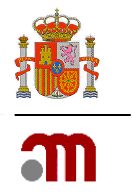
Página 34 de 53
8. Without prejudice to paragraph 7, all co-sponsors shall be jointly responsible for designating:
a) A sponsor responsible for compliance with the sponsor obligations regarding the
authorisation procedures established in Chapter V.
b) A sponsor responsible for being the contact point for receiving and answering all questions of
the trial subjects, investigators, the CEIm, or the Spanish Agency of Medicines and Medical Devices
relating to the clinical trial.
c) A sponsor responsible for applying any corrective measures that are imposed on him/her.
Article 40. Monitor.
1. The responsibilities of the monitor are:
a) To work according to sponsor standard operating procedures, visit the investigator before,
during and after the trial, according to the type of study, to control compliance with the protocol and
ensure that all data are correctly and completely recorded and reported, as well as ensuring that
informed consent is obtained from all subjects prior to their enrolment in the clinical trial.
b) To ensure that the investigators and the sites where the trial is conducted are adequate for
this purpose throughout the duration of the clinical trial.
c) To ensure that both the principal investigator and the members of the team of investigators
have been adequately informed and to guarantee that communications between the investigator and
the sponsor are prompt at all times, particularly with regard to supervision of trial safety.
d) To verify that the investigator complies with the protocol and all its approved modifications.
e) To check that the storage, distribution, returns and documentation of the investigational
medicinal products is safe and appropriate.
f) To submit to the sponsor reports on monitoring visits and all relevant contacts with the
investigator.
2. Under no circumstance may the monitor be part of the research team.
Article 41. Investigator.
1. The investigator directs and is responsible for the practical conduct of the clinical trial in a
certain site.
2. Only a doctor or a person practising a profession recognised in Spain for conducting
investigations given his/her scientific background and experience in the required patient care can act
as the investigator.
3. The responsibilities of the investigator are:
a) To sign the protocol of the clinical trial together with the sponsor.
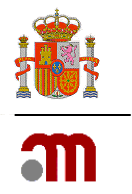
Página 35 de 53
b) To be thoroughly familiar with the properties of the investigational medicinal products.
c) To ensure that informed consent is obtained in compliance with this Royal Decree.
d) To collect, record and report trial-related data appropriately and to ensure their accuracy.
e) To follow the instructions for the reporting of adverse events established in the protocol.
f) To notify the sponsor immediately of any serious breaches of the protocol.
g) To ensure that all persons involved in the clinical trial shall respect the confidentiality of any
information concerning trial subjects, as well as the protection of their personal data.
h) To submit regular progress reports to the CEIm on the status of the clinical trial.
i) To be jointly responsible with the sponsor for the preparation of the final report of the clinical
trial, and signing of the same report to confirm his/her agreement.
4. Each person participating in the conduct of a clinical trial shall be qualified by his/her
education, training, and experience to perform his/her tasks. Likewise, the investigator shall ensure
that his/her research team is informed about the protocol, the investigational medicinal products and
their functions in the study.
5. The principal investigator may delegate tasks to the members of the research team. Such
delegation does not exempt the investigator from being responsible for conducting the clinical trial in
accordance with current legislation. The investigator responsibility delegation sheet of each clinical
trial must not only state the participating personnel but also the co-investigators, to whom the
performance of any function has been delegated, as well as their functions and responsibilities. If
changes are made, they should be noted.
6. Contracted personnel must be authorised by the management of the site, specifying if they
have access or not to the clinical history and personal data of the subjects included in the trial. This
authorisation may be accomplished in two ways, by:
a) The signing of a contract, if the personnel are contracted by the site.
b) A separate access document if the personnel are contracted by third parties.
Article 42. Publications.
1. The sponsor is obliged to publish the results, whether positive or negative, of authorised
clinical trials, preferably, in scientific journals before being disclosed to the non-healthcare public,
regardless of the obligations of publication of the summary of the results in the Spanish Clinical
Studies Registry (REec) and of the applicable provisions of Regulation (EU) No 536/2014 of the
European Parliament and of the Council, of 16 April 2014.
2. Whenever research work or studies on medicinal products directed to the scientific
community are published, they shall state the funds obtained by the author for or by the conduct of
the study and the funding source.
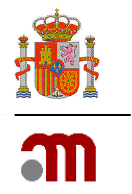
Página 36 de 53
3. The anonymity of the subjects participating in the clinical trial shall be maintained at all times.
4. Treatments of as yet undetermined efficacy shall not be made known in a premature or
sensationalist fashion, nor shall their efficacy be exaggerated. No advertising shall be made of
interim results that may compromise the reliability of the final results of the trial.
5. Advertising of investigational medicinal products for human use is strictly prohibited, as
specified in the consolidated text of the Act on guarantees and rational use of medicinal products
and medical devices approved by Royal Legislative Decree 1/2015, of 24 July, in Royal Decree
1416/1994, of 25 June, regulating the advertising of medicinal products for human use, in Royal
Decree 1907/1996, of 2 August, on advertising and commercial promotion of products, activities, and
services for alleged health purposes, and in General Act 34/1988, of 11 November, on advertising.
6. In all cases, publication of general research results once the clinical trial is completed shall be
in accordance with the European Commission guidelines and, where appropriate, the instructions of
the Spanish Agency of Medicines and Medical Devices.
7. When a substudy of a clinical trial ends on a later date than the rest of the clinical trial, it shall
be required to publish the summary of its results in the year following its completion, without this
implying a delay in submitting the results of the rest of the clinical trial.
Article 43. Content and archiving of the clinical trial master file.
1. The clinical trial master file shall comply with the provisions laid down in articles 57 and 58 of
Regulation (EU) No 536/2014 of the European Parliament and of the Council, of 16 April 2014. The
content must take into account the supplementary guidelines in this regard published by the
European Commission.
2. The sponsor and investigator shall keep the contents of the master file in paper or digital
format of each clinical trial during at least twenty-five years after the end of the clinical trial, or for a
longer period if this is laid down in other applicable requirements, such as in the event of the study
being submitted as a basis for the authorisation of a medicinal product which must comply with
Annex I of Royal Decree 1345/2007, of 11 October, or an agreement between the sponsor, the
investigator and the site.
3. The contents of the master file shall be archived in a way that ensures that it is readily
available and accessible, upon request, to the competent authorities.
4. The clinical history of trial subjects shall be kept in safekeeping as provided for under the
provisions laid down in Act 41/2002, of 14 November, and in accordance with the maximum period
allowed by the hospital, institution or private clinic.
5. Any transfer of ownership of the content of the clinical trial master file shall be documented
and the new owner shall assume the responsibilities set out in this article.
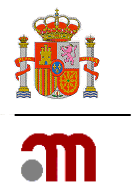
Página 37 de 53
6. The sponsor shall appoint individuals within its organisation to be responsible for archives
and access to these archives shall be restricted to those designated individuals.
7. The media used to archive the essential documents shall generally be in electronic format
and they must ensure that the content remains complete and legible throughout the planned period
of retention and is accessible, upon request, to the competent authorities. Any alteration to the
records must be traceable, allowing the original and corrected data entry to be known, along with the
date and signature of the author.
This documentation must be archived, preferably grouped by protocols, in a location that
ensures the confidentiality of the information throughout the required archiving period.
In the case of pending legal proceedings, the essential documents shall be kept while there is
no final court decision.
CHAPTER X
Verification of compliance with the good clinical practice guidelines
Article 44. General provisions regarding inspection.
1. The Spanish Agency of Medicines and Medical Devices and the competent health authorities
of the Autonomous Communities, within the scope of their respective competences, shall verify
compliance with this Royal Decree, good clinical practice guidelines and good manufacturing
practice guidelines in clinical trials conducted in Spain through the corresponding inspections.
2. The authorities of the General State Administration and the competent Autonomous
Communities shall provide mutual assistance in these inspections.
3. In the activity of inspection of good clinical practice, they must comply with the requirements
on personal data protection set out in Organic Act 15/1999, of 13 December.
4. The inspections shall be carried out in accordance with the guidelines prepared at European
level to support mutual recognition of the conclusions of inspections within the European Union.
5. The relationship with the competent authorities of the Member States of the European Union
regarding inspection of good clinical practice shall be carried out through the Spanish Agency of
Medicines and Medical Devices.
6. When a health authority of a Member State of the European Union requests information
related to an inspection by a reasoned letter, the Spanish Agency of Medicines and Medical Devices
shall send the relevant report. For this, where appropriate, the report shall be requested from the
competent authorities of the Autonomous Community in which the site is situated.
7. Likewise, when information needs to be requested from another Member State on an
inspection carried out in that State, the Spanish Agency of Medicines and Medical Devices shall
address the competent body of that State by a reasoned letter, and shall request the relevant
information.
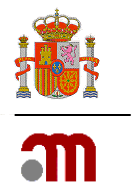
Página 38 de 53
8. The competent authorities of third countries that are to carry out inspections of good clinical
practice in Spain must inform the Spanish Agency of Medicines and Medical Devices with sufficient
time. The sponsor shall be responsible for informing the competent authority of the third country of
this obligation of notification. The Spanish Agency of Medicines and Medical Devices shall inform the
Autonomous Community where the site to be inspected is located.
9. The Spanish Agency of Medicines Products and Medical Devices shall inform the European
Medicines Agency on the inspections carried out in Spain and their results. For this purpose, the
Autonomous Communities shall send to the Spanish Agency of Medicines and Medical Devices the
information on the inspections carried out in the format agreed in the Technical Inspection
Committee.
Article 45. Inspection procedure.
1. Inspections shall be carried out by duly qualified inspectors, appointed for this purpose, in the
sites related to the conduct of the clinical trials and, among others, in the trial site or sites where the
clinical trial is being conducted, the manufacturing site of the investigational medicinal product, any
laboratory used for analyses in the clinical trial, the CEIm, and the facilities of the sponsor and/or
research organisations or companies involved by contract in the conduct of the trial.
2. At the end of each inspection, inspectors shall draw up a regulatory inspection report that
shall be signed by the inspector or inspectors performing the inspection as well as by the inspected
parties. The report shall contain the facts and most relevant findings resulting from the inspection
actions.
3. Subsequently, the inspectors shall write a report on compliance with good clinical practice
and the requirements established in this Royal Decree, which shall conform to the agreed format by
the European Union. Before adopting the report, the inspected entity shall be given the opportunity to
submit observations on the inspection made.
4. This report must be made available to the inspected parties, the competent authorities in
Spain, and the sponsor, safeguarding the confidential aspects. Upon reasoned request, the report
can be made available to the corresponding CEIm, if it had not been direct object of the inspection,
as well as to the health authorities of the European Union, European Medicines Agency and health
authorities with which there are agreements.
5. In the event of the inspection having found serious breaches, as defined in article 52.2 of
Regulation (EU) No 536/2014 of the European Parliament and of the Council, of 16 April 2014, or
having led to the adoption of the precautionary measures stated in article 109 of the consolidated
text of the Act on guarantees and rational use of medicinal products and medical devices approved
by Royal Legislative Decree 1/2015, of 24 July the health authority approving the precautionary
measure should immediately inform this to the sponsor, the CEIm and other health authorities
according to their respective competences.
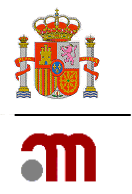
Página 39 de 53
CHAPTER XI
C
ommunications
Article 46. Information systems.
1. The Spanish Agency of Medicines and Medical Devices shall be the national contact point
established by article 83 of Regulation (EU) No 536/2014 of the European Parliament and of the
Council, of 16 April 2014.
2. All communications between the agents involved in the application, assessment, and
authorisation of clinical trials with medicinal products shall be submitted, when available, through the
EU portal and the EU database to which reference is made in articles 80 and 81 of Regulation (EU)
No 536/2014 of the European Parliament and of the Council, of 16 April 2014.
3. Until the information systems referred to in paragraph 2 are available or as a complement to
them:
a) The Spanish Agency of Medicines and Medical Devices shall enter in the European clinical
trials database (EudraCT) the data related to the clinical trials with medicinal products for human use
conducted in Spain.
b) The Spanish Agency of Medicines and Medical Devices shall maintain the information system
for clinical trials with medicinal products for human use conducted in Spain. This information system
shall serve as the single contact point for the sponsor in all matters relating to their clinical trials,
redirecting the information, as appropriate, to the Spanish Agency of Medicines and Medical Devices
and the CEIm, as well as to the competent authorities of the Autonomous Communities and the
REec.
4. The information system referred to in the previous paragraph shall also serve for all types of
communication and transmission of decisions between the Spanish Agency of Medicines and
Medical Devices and the CEIm with the sponsor, as well as communication and transmission of
opinions or other documents between the CEIm and the Spanish Agency of Medicines and Medical
Devices.
Article 47. Spanish Clinical Studies Registry (REec).
1. The Spanish Agency of Medicines and Medical Devices shall maintain a registry of clinical
studies with medicinal products for human use on its website.
2. The REec shall include the following information:
a) Compulsorily, clinical trials with medicinal products for human use that are authorised by the
Spanish Agency of Medicines and Medical Devices, in accordance with this Royal Decree.
b) Compulsorily, non-interventional post-authorisation studies that are to be conducted and
have been classified by the Spanish Agency of Medicines and Medical Devices.
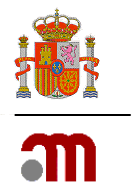
Página 40 de 53
c) Voluntarily, as with other similar databases, other types of clinical studies sponsored by
national or international, public or private entities, provided they have at least one participating site
located in Spain including cases, or although not including cases, that have a Spanish contribution
considered as significant.
3. Registration of a clinical trial or study in the REec shall be compatible with inclusion in other
national or international registries. The REec shall include prospective information in its scope of
application from the start of its operation.
4. The REec shall include for each study the information specified in the Annex, including the
data set required in the International Clinical Trials Registry Platform of the World Health
Organisation. The Spanish Agency of Medicines and Medical Devices shall publish the
correspondence between these fields and those of the application form for authorisation of the
clinical trial submitted to the Agency for the case of clinical trials with medicinal products, as well as
those of the application form for classification of non-interventional studies.
5. In all cases, the sponsor must publish in this registry the results of the registered research
studies when they have concluded. This shall be done in accordance with the standard and the
timelines indicated in the European Commission guidelines and, where appropriate, in the
instructions published by the Spanish Agency of Medicines and Medical Devices.
Article 48. Procedure for publication of a study in the REec.
1. The REec aims to provide reliable and comprehensible information for the general public so
the information contained in some fields could be limited in extent and should be written in a simple
and accessible language to the public with no special scientific knowledge.
In order for the REec to be included in the WHO International Clinical Trials Registry Platform,
all information shall be available in Spanish and English.
2. The sponsor shall be responsible for the quality, accuracy, and regular updating of all study
information included in the REec. The Spanish Agency of Medicines and Medical Devices shall
confirm before inclusion that the data are complete and appropriate for its purposes.
3. The registration of the study must be processed, in any case, after obtaining all the
authorisations deemed necessary according to current regulations and before the inclusion of the
first subject in the study, regardless of whether the study has been previously registered in another
public registry or included or not in the WHO International Clinical Trials Registry Platform.
4. As a general rule, publication of the clinical trials shall be performed in accordance with one
of the procedures established in paragraphs 5, 6 and 7.
5. The information on clinical trials with medicinal products, which is common to the European
Union Clinical Trials Registry, shall be published by the Spanish Agency of Medicines and Medical
Devices at the time of trial authorisation. The sponsor of a clinical trial with medicinal products shall
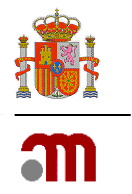
Página 41 de 53
have a maximum of 14 calendar days from the notification of this authorisation to complete the
required additional information in the REec, with a brief summary of the clinical trial and participating
sites.
6. For registration of non-interventional post-authorisation studies in the REec, the sponsor shall
include the study data in the registry before its initiation or within 14 calendar days after obtaining the
relevant authorisations according to the applicable regulations for those studies requiring prior
authorisation.
7. The sponsor of the type of studies included in article 47.2.c) may freely choose to register
their data in the REec once the study has a favourable opinion from a REC and, where appropriate,
the relevant administrative authorisation. The opinion of the REC shall be submitted to the Spanish
Agency of Medicines and Medical Devices on applying for registration in the registry.
However, the Spanish Agency of Medicines and Medical Devices reserves the final right to
verify the information received and permit its publication in the REec or, if the information cannot be
validated, not to include it.
In any case, the Spanish Agency of Medicines and Medical Devices shall publish a document
listing the rules to be complied with for registration of studies in the REec.
8. The Spanish Agency of Medicines and Medical Devices may decide to make public partial
information about a clinical trial or a non-interventional post-authorisation study in which the sponsor
has failed to comply with the periods for submitting the information, expressly stating the sponsor
details and the reasons why this information of the registry is partial. This shall be independent of the
imposing of any punitive actions that might be applicable in accordance with current legislation.
9. It is the responsibility of the sponsor to update regularly the information included in the REec.
This update shall be mandatory with regard to the study start date in Spain, the participating sites,
the recruitment completion date in Spain, substantial modifications involving a change in the data
included in the registry and the study completion date in Spain. Updating shall be done on an overall
basis and in any event at annual intervals until the end of the study and publishing of the results.
CHAPTER XII
M
onitoring of the safety of investigational medicinal products
Article 49. Obligations of investigators in the recording and reporting of adverse events.
1. The investigator shall record and document any adverse events or abnormal laboratory
results that are identified in the protocol as critical to the assessment of safety and report them to the
sponsor in accordance with the reporting requirements and within the periods specified in the
protocol, as established in article 41 of Regulation (EU) No 536/2014 of the European Parliament
and of the Council, of 16 April 2014.
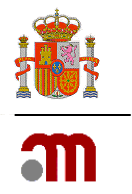
Página 42 de 53
2. The investigator shall report all serious adverse events to the sponsor without undue delay
but not later than 24 hours from the time he/she has knowledge of these events, unless, for certain
serious adverse events, the protocol provides that no immediate reporting is required. The
investigator, where applicable, shall send a follow-up report to the sponsor to allow the sponsor to
assess whether the serious adverse event has impact on the benefit-risk balance of the clinical trial.
The initial and follow-up reports shall identify the trial subjects only by a subject identification code
assigned in the trial, specific for each of them.
3. If the death of a subject participating in a clinical trial has been reported, the investigator shall
provide the sponsor and the CEIm with any additional information requested.
4. If the investigator becomes aware of a serious adverse event with a suspected causal
relationship to the investigational medicinal product that occurs after the end of the clinical trial in a
subject treated by him/her, this serious adverse event shall be reported, without undue delay, to the
sponsor.
5. In any case, the indications specified in the European Commission guidelines should be
taken into account or, where appropriate, in the procedures established in the instructions for the
conduct of clinical trials in Spain published by the Spanish Agency of Medicines and Medical
Devices.
Article 50. Other obligations of the sponsor in the recording, assessment and reporting of
adverse events.
1. The sponsor shall keep detailed records of all adverse events which are reported to the
sponsor by the investigators. These adverse events shall be submitted to the Spanish Agency of
Medicines and Medical Devices upon its request.
2. The sponsor is responsible for the continuous assessment of the benefit-risk balance of the
clinical trial, which includes a continuous safety assessment of the investigational medicinal products
using all the information available. Likewise, the sponsor must report to the Spanish Agency of
Medicines and Medical Devices and the CEIm, without undue delay, in the period of fifteen calendar
days, by the means indicated in article 21, any information substantially affecting the benefit-risk
balance of the clinical trial, except for suspected unexpected serious adverse reactions which shall
be reported according to article 51. This reporting shall be made in accordance with the European
Commission guidelines or, where appropriate, the procedures established in the instructions for the
conduct of clinical trials in Spain published by the Spanish Agency of Medicines and Medical
Devices.
3. The sponsor shall promptly report to the investigators any important information that could
adversely affect the safety of the subjects or the conduct of the clinical trial. Reporting of this
information shall be concise and practical. Reporting shall conform to the criteria and the procedure
specified in the European Commission guidelines.
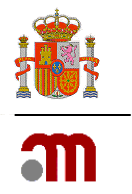
Página 43 de 53
Article 51. Reporting of suspected unexpected serious adverse reactions to the Spanish Agency
of Medicines and Medical Devices.
1. The sponsor shall report to the Spanish Agency of Medicines and Medical Devices all
suspected unexpected adverse reactions associated with investigational medicinal products of which
it becomes aware, which have occurred in the clinical trial, whether occurring in Spain or in other
countries. In addition, any suspected serious adverse reactions and, at the same time, unexpected
occurring outside the clinical trial shall be reported according to the criteria established in the
European Commission guidelines.
2. In all cases, this reporting shall be carried out through European Eudravigilance CTM
database.
3. The timelines for reporting suspected unexpected serious adverse reactions by the sponsor
to the Spanish Agency of Medicines and Medical Devices shall depend on the seriousness of the
reaction and shall be determined as follows:
a) In the case of fatal or life-threatening suspected unexpected serious adverse reactions, as
soon as possible and, in any event, not later than seven days after the sponsor became aware of the
reaction.
b) In the case of non-fatal or non-life-threatening suspected unexpected serious adverse
reactions, not later than fifteen days after the sponsor became aware of the reaction.
c) In the case of suspected unexpected serious adverse reactions which were initially
considered to be non-fatal or non-life-threatening but which turns out to be fatal or life-threatening, as
soon as possible and, in any event, not later than seven days after the sponsor became aware of the
reaction being fatal or life-threatening.
When required to ensure prompt reporting, the sponsor may submit an incomplete initial report
which must be completed as far as possible in the following eight days.
4. The reporting of serious and unexpected adverse reactions by the sponsor to the Spanish
Agency of Medicines and Medical Devices shall conform, in any event, to the criteria and the
procedure specified in articles 42, 45 and 46 of Regulation (EU) No 536/2014 of the European
Parliament and of the Council, of 16 April 2014.
Article 52. Exchange of information about clinical trials with the competent bodies of the
Autonomous Communities.
1. The Spanish Agency of Medicines and Medical Devices shall provide a system by which
suspected unexpected serious adverse reactions associated with the investigational medicinal
product and occurring in patients included in a clinical trial in Spain are available to the competent
bodies of the Autonomous Communities in real time through the clinical trial information system.
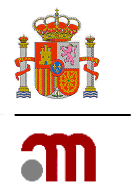
Página 44 de 53
2. Until a valid system of electronic exchange of information is available for all Autonomous
Communities, as indicated in article 19, reporting to the Autonomous Communities by the sponsor
shall be carried out according to the criteria established in the relevant instructions of the Spanish
Agency of Medicines and Medical Devices.
Article 53. Annual safety report and other safety reports.
1. The sponsors of clinical trials shall prepare an annual safety report in which the safety of the
investigational medicinal product is assessed taking into account all the information available. This
report shall be submitted to the Spanish Agency of Medicines and Medical Devices and the CEIm.
2. Irrespective of the annual safety report, the sponsor shall prepare an "ad hoc" assessment
report whenever there is a relevant safety problem. This report shall be submitted immediately to the
Spanish Agency of Medicines and Medical Devices and the CEIm as stated in the previous
paragraph.
3. Submission of the annual safety report and other safety reports by the sponsor shall conform
in all cases to the criteria and the procedure specified in articles 43, 45 and 53 of Regulation (EU) No
536/2014 of the European Parliament and of the Council, of 16 April 2014.
4. The sponsors of clinical trials in which the investigational medicinal products, excluding
placebos, are authorised and, according to the clinical trial protocol, are used in accordance with the
terms of marketing authorisation, may submit a simplified report in accordance with the instructions
for the conduct of clinical trials in Spain published by the Spanish Agency of Medicines Products and
Medical Devices.
CHA
PTER XIII
I
nfringements
Article 54. Administrative infringements related to clinical trials.
Administrative infringements shall be those laid down in Chapter II of Title IX of the consolidated
text of the Act on guarantees and rational use of medicinal products and medical devices , approved
by Royal Legislative Decree 1/2015, of 24 July, and they shall be sanctioned in accordance with
article 114 of this Act.
First additional provision. Ethics Committees for Clinical Investigation.
1. Within the period of two years from the effective date of this Royal Decree, Ethics
Committees for Clinical Investigation may be accredited as CEIm by the competent health authorities
of the Autonomous Communities, taking into account for this purpose the criteria established in
Chapter IV.
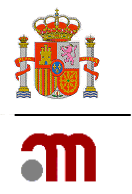
Página 45 de 53
2. Once this period of two years has elapsed, those Ethics Committees for Clinical Investigation
that are not CEIm may continue to perform the functions of Ethics Committees for Investigation not
related to the assessment of clinical trials with medicinal products or medical devices until the
specifications established in the third transitional provision of Act 14/2007, of 3 July, are met.
3. The references to Ethics Committees for Clinical Investigation indicated in the consolidated
text of the Act on guarantees and rational use of medicinal products and medical devices approved
by Royal Legislative Decree 1/2015, of 24 July shall be understood to be performed by the CEIm
under the terms established in this Royal Decree.
Second additional provision. Non-interventional studies.
Without prejudice to the provisions specified in Chapter IV in articles 18, 47 and 48, the non-
interventional studies defined in paragraph k) of article 2.1 shall be governed by their specific
regulations.
Third additional provision. Clinical investigations with medical devices.
1. Clinical investigations with medical devices shall be governed by the ethical and
methodological principles and those of protection of trial subjects laid down in this Royal Decree,
taking into account the provisions of the medical devices regulation.
2. The CEIm shall issue an opinion on clinical investigations with medical devices. This shall be
done, taking into account, in particular, the provisions specified in article 16.4.a). When this research
is conducted in various sites, the opinion shall be issued by an CEIm in Spain and shall be single
and binding.
3. The start of clinical research with medical devices bearing CE marking and which are used
for the same indications included in the conformity assessment procedure shall be notified to the
Spanish Agency of Medicines and Medical Devices whenever any intervention modifying standard
clinical practice is performed in these investigations.
Fourth additional provision. Collegiate bodies of the Spanish Agency of Medicines and Medical
Devices.
Within a year from the effective date of this Royal Decree, the Spanish Agency of Medicines
and Medical Devices shall submit a proposal to the Ministry of Finance and Public Administration for
rationalisation of the collegiate bodies attached to it, pursuant to Royal Decree 776/2011, of 3 June,
dissolving certain collegiate bodies and establishing criteria for the standardisation of the creation of
collegiate bodies in the General State Administration and its Public Bodies.
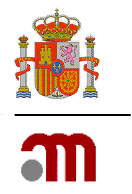
Página 46 de 53
Fifth additional provision. No increase in personnel costs.
The measures provided for in this Royal Decree shall not involve any increase in remuneration,
provisions or other personnel costs.
Sixth additional provision. Application of this Royal Decree to health services of the Armed
Forces.
Pending development of the stipulations contained in the second additional provision of the
consolidated text of the Act on guarantees and rational use of medicinal products and medical
devices approved by Royal Legislative Decree 1/2015, of 24 July application of this Royal Decree to
the health services of the Armed Forces shall be according to the following rules:
a) The Ministry of Health, Social Services and Equality shall hold the accreditation as the CEIm
of the health services of the Armed Forces.
b) The Ministry of Defence, through the General Public Health Inspection of Defence, shall
exercise the competences concerning inspection, receipt of communications and reports and other
matters that are attributed by this Royal Decree to the Autonomous Communities, in their area of
competences.
Seventh additional provision. Adoption of developing instructions.
The Spanish Agency of Medicines and Medical Devices is empowered to adopt the good clinical
practice guidelines and instructions for the conduct of clinical trials in Spain, which it shall maintain
updated on its website.
First transitional provision. Transitional regime related to the functions of assessment of clinical
studies with medicinal products or medical devices of the Ethics Committees for Clinical
Investigation.
During the two years following entry into force of this Royal Decree, Ethics Committees for
Clinical Investigation already accredited at the time of its entry into force shall assume the functions
of Ethics Committees for Investigation with medicinal products related to assessment of clinical
studies with medicinal products or medical devices and shall be supervised and coordinated in
respect of these functions in the same manner as the latter.
Second transitional provision. Procedure for applications for clinical trial authorisation and
modification, communications and notifications before full functionality of the EU portal and the EU
database.
1. Until the date of full application of Regulation (EU) No 536/2014 of the European Parliament
and of the Council, of 16 April 2014, as provided in its article 99, the submission of applications and
communications and receipt of notifications listed in articles 21.1, 26.3, 30.1, 51.2, 51.4 and 53.3 of
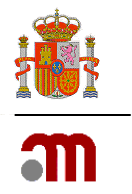
Página 47 de 53
this Royal Decree, shall conform to the provisions of the following paragraphs taking into account the
provisions in article 46, paragraphs 3 and 4:
a) Applications for authorisation and an opinion on the clinical trial, as well as all subsequent
communications, shall be submitted by the sponsor only via or by electronic means and
simultaneously to the Spanish Agency of Medicines and Medical Devices and the CEIm who accepts
assessment at the proposal of the sponsor, in accordance with the provisions of article 27.6 of Act
11/2007, of 22 June, on citizen electronic access to public services, unless it is justified that access
and availability of the required technological resources is not guaranteed. In any case, if this
simultaneous submission did not occur, the date of the last application submitted shall be considered
for the purpose of processing of the procedure.
b) For submission by electronic means, the Portal of Clinical Trials with medicinal products of
the Ministry of Health, Social Services and Equality has been enabled, which may be accessed at
the electronic headquarters of the Spanish Agency of Medicines and Medical Devices.
Alternatively, electronic submission may be performed without a recognised digital certificate by
submitting in the registry of the Spanish Agency of Medicines Medical Devices or the CEIm, as
appropriate, the proof of the electronic submission with a handwritten signature.
c) Notifications of the Spanish Agency of Medicines and Medical Devices to the sponsor shall
be made electronically. The sponsor must therefore appear at the electronic headquarters of the
Spanish Agency of Medicines and Medical Devices. Likewise, the CEIm shall send its notifications
by e-mail.
d) To make the submission electronically and receive electronic notifications, the sponsor must
have a computer, an Internet connection and a recognised digital certificate issued by any of the
certification service providers that are registered in the registry of the Secretary of State for
Telecommunications and Information Society in accordance with article 30 of the Electronic
Signature Act 59/2003, of 19 December. Furthermore, to receive electronic notifications, the sponsor
must have an e-mail account and have expressed his/her consent when submitting the application.
e) When a sponsor, due to lack of resources, is unable to report a suspected unexpected
serious adverse reaction to the Eudravigilance CTM database, he/she may report it to the Spanish
Agency of Medicines and Medical Devices according to the procedure established in the instructions
for the conduct of clinical trials in Spain published by said Agency.
2. In accordance with the provisions of article 98 of Regulation (EU) No 536/2014 of the European
Parliament and of the Council, of 16 April 2014, during the year following the date of full application of
this Regulation, the sponsor may choose to request authorisation of a clinical trial pursuant to article
21.1 of this Royal Decree or as indicated in the previous paragraph. In this latter case, subsequent
notifications referring to the clinical trial shall continue to be made in accordance with the terms in this
provision up to three years after the date of full application of this Regulation (EU).
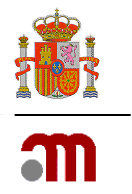
Página 48 de 53
Third transitional provision. Procedure for authorisation of a clinical trial before full functionality
of the EU portal and the EU database.
Until full application of Regulation (EU) No 536/2014 of the European Parliament and of the
Council, of 16 April 2014, as provided in its article 99, the procedure for authorisation of a clinical
trial, regulated in articles 21 to 30 of this Royal Decree, must conform to the following rules:
a) For validation of an application, the sponsor must submit an application containing all the
necessary documents related to Part I and Part II. In the case of clinical trials with a medicinal
product not authorised in any country of the European Economic Area which contains an active
substance or a combination of active substances not authorised in Spain, qualification as “a product
under clinical investigation” (producto en fase de investigación clínica or PEI) shall be requested for
this medicinal product.
The Spanish Agency of Medicines and Medical Devices and CEIm shall notify the sponsor if the
application for Part I and Part II, respectively, are complete in a maximum period of ten calendar
days. If any part is incomplete, this shall be notified to the sponsor setting a maximum period of ten
calendar days for this sponsor to submit his/her comments. This period may be extended to thirty
calendar days in the case of clinical trials meeting the definition of "Non-commercial Clinical
Research".
If the sponsor does not answer within the stipulated period, the application shall be deemed to
have lapsed and shall be so notified. If the sponsor submits supplementary documentation that
permits the application to be completed, the CEIm, or the Agency, as appropriate, shall report the
assessment schedule to the sponsor within five calendar days, which shall start from the day
following the date of receipt of this documentation which, for the purposes of this article, shall be
considered as the valid application date.
b) For Part I of the assessment report, regulated in article 23 of this Royal Decree, the Spanish
Agency of Medicines and Medical Devices shall be responsible for sending to the sponsor the
conclusions of Part I of the assessment report, including those aspects which have been assessed
by the CEIm, within the periods stipulated in article 6 of Regulation (EU) No 536/2014 of the
European Parliament and of the Council, of 16 April 2014. However, the assessment period shall
start from the valid application date.
c) With regard to Part II of the assessment report, regulated in article 24, it should be borne in
mind that the assessment period shall start from the valid application date.
d) Regarding the authorisation decision, regulated in article 25, the Director of the Spanish
Agency of Medicines and Medical Devices, in a period of five days from the last date of notification to
the sponsor of the conclusions of Part I and Part II, shall issue the decision authorising the clinical
trial, authorising the clinical trial subject to conditions, or refusing the authorisation.
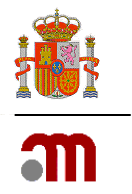
Página 49 de 53
e) A clinical trial cannot commence without prior written authorisation from the Spanish Agency
of Medicines and Medical Devices in the following cases:
1. Clinical trials where the Agency has notified objections to the sponsor within the 45 day
period referred to in article 6 of Regulation (EU) No 536/2014 of the European Parliament and of the
Council, of 16 April 2014.
2. Clinical trials with medicinal products requiring qualification as a product under clinical
investigation.
3. Clinical trials with advanced therapy medicinal products, as well as clinical trials with
medicinal products containing genetically modified organisms.
In these cases, if after the period of five days specified in paragraph d), no notification of the
decision has been made to the interested party, it shall be understood that the application has been
refused.
For the authorisation of subsequent clinical trials with an investigational medicinal product
previously considered a product under clinical investigation, the documentation mentioned in article
22.1 should be updated, whenever necessary.
f) With regard to the modification of the clinical trial authorisation conditions, regulated in article
26, it shall be borne in mind that the assessment period shall start from the valid application date.
g) Finally, concerning the application of article 30, it shall be taken into account that, regardless
of the result of the clinical trial, within a year from completion of the trial the sponsor shall send the
Spanish Agency of Medicines and Medical Devices and the CEIm the summary of results of the trial
in accordance with the current European guidelines.
Sole repeal provision. Statutory repeal.
Any provisions of equal or lower rank that are contrary to the provisions in this Royal Decree are
hereby repealed and, in particular, Royal Decree 223/2004, of 6 February, regulating clinical trials
with medicinal products, as well as Order SCO/256/2007, of 5 February, establishing detailed
principles and guidelines of good clinical practice and requirements to authorise the manufacture or
importation of investigational medicinal products for human use.
First final provision. Modification of the Statute of the Spanish Agency of Medicines and Medical
Devices approved by Royal Decree 1275/2011, of 16 September, establishing the State Agency
"Spanish Agency for Medicinal Products and Medical Devices" and approving its Statute.
A new article is added to the Statute of the Spanish Agency for Medicinal Products and Medical
Devices approved by Royal Decree 1275/2011, of 16 September, establishing a State Agency
"Spanish Agency of Medicines and Medical Devices" and approving its Statute, as follows:
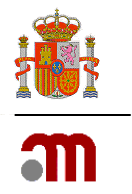
Página 50 de 53
"Article 28 bis. The Medical Devices Committee.
1. The Medical Devices Committee is the collegiate body that provides advice on technical,
scientific and clinical matters related to the safety, efficacy, and quality of medical devices in all
procedures undertaken by the Spanish Agency of Medicines and Medical Devices, both as the
competent authority and as notified body.
2. The functions of the Medical Devices Committee are:
a) To propose to the Spanish Agency of Medicines and Medical Devices the conduct of studies
and investigations it considers necessary regarding medical devices.
b) To advise the Spanish Agency of Medicines and Medical Devices on issues related to safety,
clinical efficacy, performance, quality, information, and proper use of medical devices.
c) To advise the Spanish Agency of Medicines and Medical Devices in the performance of the
function of evaluation of adverse incidents in its area of responsibility within the framework of the
Medical Devices Vigilance System, as well as in the evaluation of risks that may arise with marketed
medical devices.
d) To provide technical advice to the Spanish representatives in working groups and meetings
on medical devices held in the European Union and other international organisations.
e) To provide opinion on testing methods and technical standards.
f) To advise on the measures to be adopted that are aimed at safeguarding public health and
protection of patients and users with regard to medical devices, as well as on the recommendations
to be issued for protection of the health of the population, safe use of the products and follow-up and
treatment of patients.
g) To issue a report at the request of the Director of the Spanish Agency of Medicines and
Medical Devices, on the "CE" certification procedures of medical devices.
h) To provide opinion about any other issue related to medical devices.
3. The Medical Devices Committee shall consist of the following members:
a) Five members based on their position:
1. The Director of the Spanish Agency of Medicines and Medical Devices or designee.
2. The Head of the Department of Medical Devices of the Spanish Agency of Medicines and
Medical Devices.
3. The person responsible for the area of vigilance and market surveillance of the Department of
Medical Devices of the Spanish Agency of Medicines and Medical Devices.
4. The person responsible for the area of certification of the Spanish Agency of Medicines and
Medical Devices.
5. The person who chairs the Technical Inspection Committee.
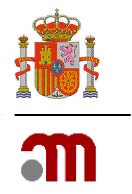
Página 51 de 53
b) Four members on behalf of:
1º. The Spanish Ministry of Health, Social Services and Equality.
2º. The Carlos III Health Institute, proposed by its supreme governing body.
3º. The National Institute of Toxicology and Forensic Sciences, proposed by its supreme
governing body.
4º. The Higher Council for Scientific Research, proposed by its supreme governing body.
4. By virtue of the provisions of article 29.3, the Committee may request the collaboration of as
many experts as it deems appropriate.
5. The Chair of the Committee shall be the Director of the Spanish Agency of Medicines and
Medical Devices, or person designated as his/her replacement, and one of the members of the
Spanish Agency of Medicines and Medical Devices shall act as Secretary. In the event of vacancy,
absence or illness, the Chair of Committee shall correspond to the Head of the Department of
Medical Devices of the Spanish Agency of Medicines and Medical Devices.
6. The Medical Devices Committee shall hold such meetings as are required by its advisory
functions, in response to the needs of the Spanish Agency of Medicines and Medical Devices,
working in plenary sessions or in Committees, in accordance with the regulations established in its
Internal Rules of Operation.
Likewise, it may hold remote meetings and issue reports and adopt decisions by written
procedure, without the need to resort to the on-site meeting of its members."
Second final provision. Qualifying title.
This Royal Decree is enacted under the provisions of article 149.1.16 of the Spanish
Constitution, which grants the State the sole authority regarding the legislation on medicinal
products.
Third final provision. Development powers.
The Minister of Health, Social Services and Equality is empowered to issue the necessary
measures for the development of this Royal Decree, and for the updating of its Annex, according to
the advance of scientific and technical knowledge and in accordance with the guidelines of the
European Union. In particular, the Minister of Health, Social Services and Equality is empowered to
revise the limits established in article 10.3.
Fourth final provision. Entry into force.
This Royal Decree shall enter into force twenty days after its publication in the Official State
Journal, except for paragraph 1 of article 21, article 22, paragraphs 1 and 3 of article 23 and
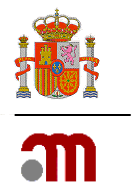
Página 52 de 53
paragraph 1 of article 25 which shall be effective as from the date on which Regulation (EU) No
536/2014 of the European Parliament and of the Council, of 16 April 2014, is fully applicable as
provided in its article 99.
Done at Madrid, on 4 December 2015.
FELIPE R.
The Ministry of Health, Social Services and Equality
ALFONSO ALONSO ARANEGUI
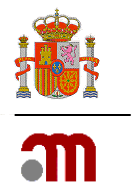
Página 53 de 53
ANNEX
Data to be included in the REec
1. Study identification number in the primary registry.
2. Date of registration in the REec.
3. Secondary identification numbers.
4. Brief summary with rationale for the study.
5. Source of funding or material support.
6. Sponsor.
7. Contact for queries by the general public.
8. Contact for scientific queries.
9. Public study title.
10. Scientific study title and acronym, if the study has one.
11. Countries where it is planned to recruit subjects.
12. Trial sites.
13. Disease or health problem under study.
14. Interventions being studied.
15. Main inclusion and exclusion criteria.
16. Type and scope of study.
17. Date of recruitment of the first subject in Spain.
18. Sample size (number of subjects to be included).
19. Study status (uninitiated; recruitment started; recruitment concluded, temporarily
discontinued or discontinued; completed in Spain; completed in all participating countries).
20. Primary objective and study variables and times when they will be assessed.
21. Secondary objectives and study variables and times when they will be assessed.
22. Date of opinion by CEIm and authorisation by the Spanish Agency of Medicines and Medical
Devices or by the corresponding Autonomous Community (where applicable).
23. Study portal (if applicable).
24. Study results (the registry will contain a link to the scientific publications of the study.
Submission of the results will conform, where applicable, to the EU standard).
25. Date of last modification of the record in the REec.
